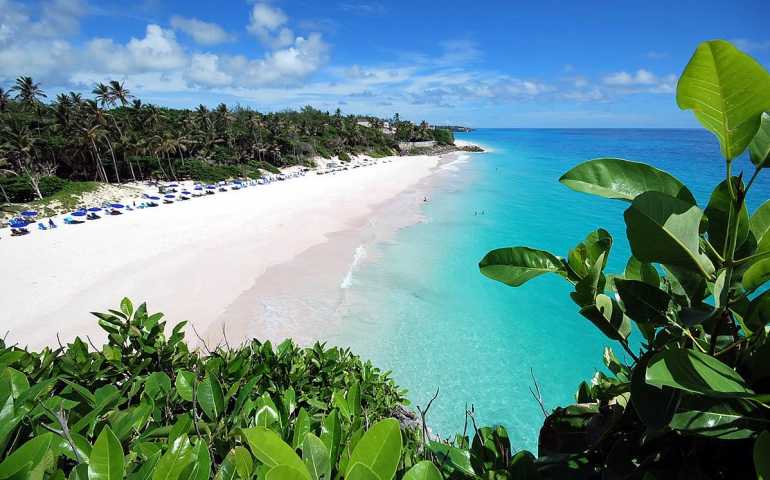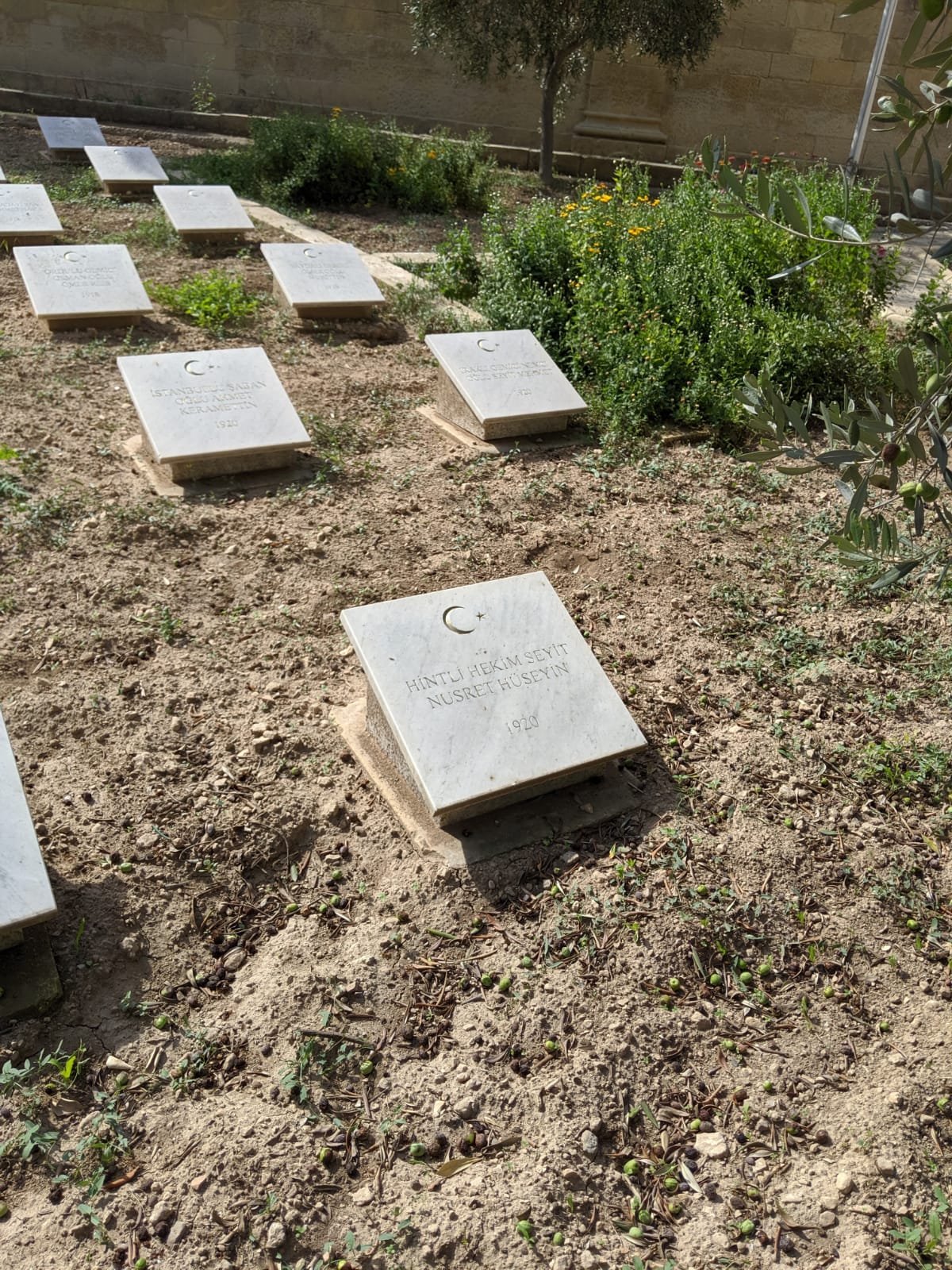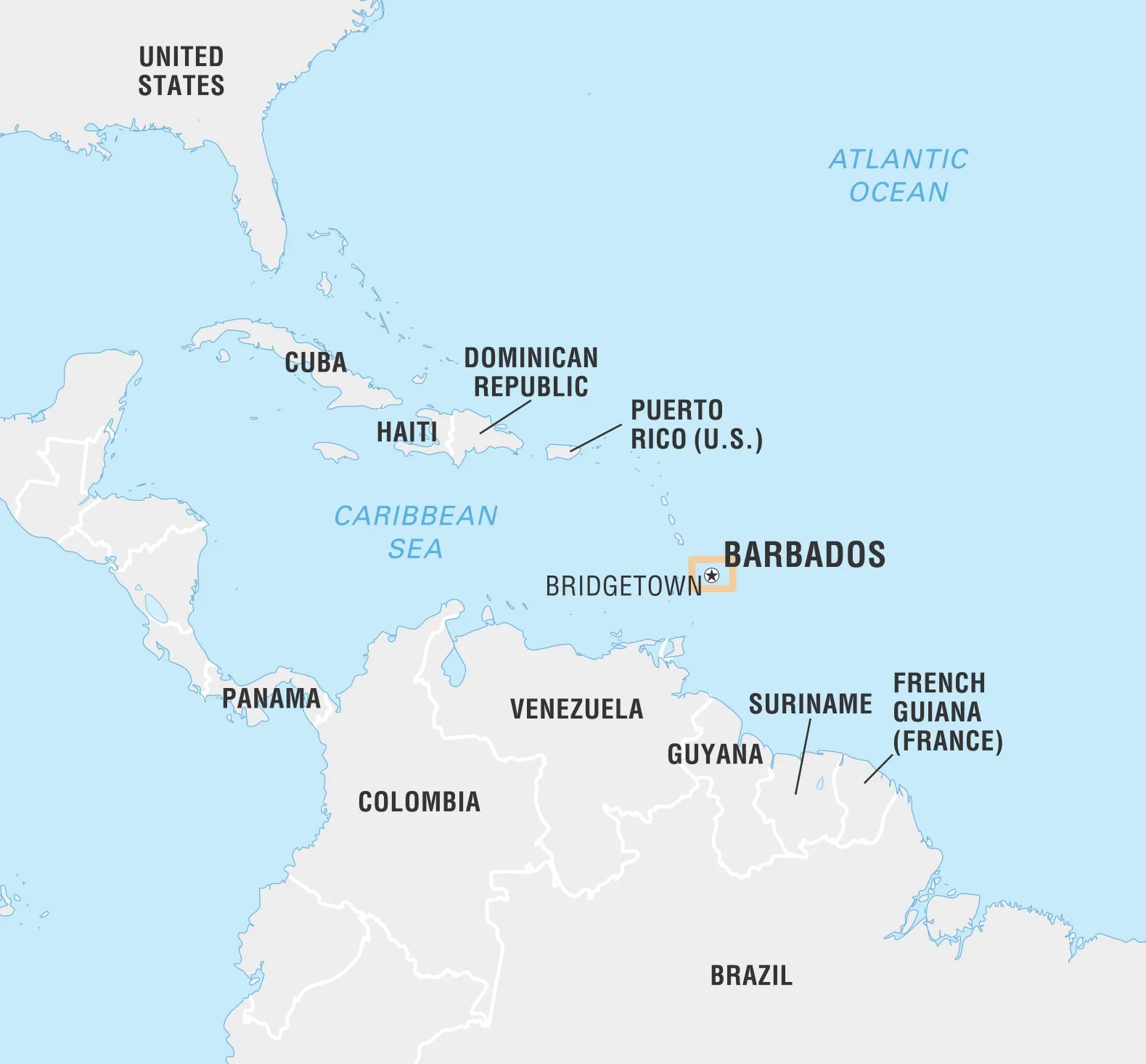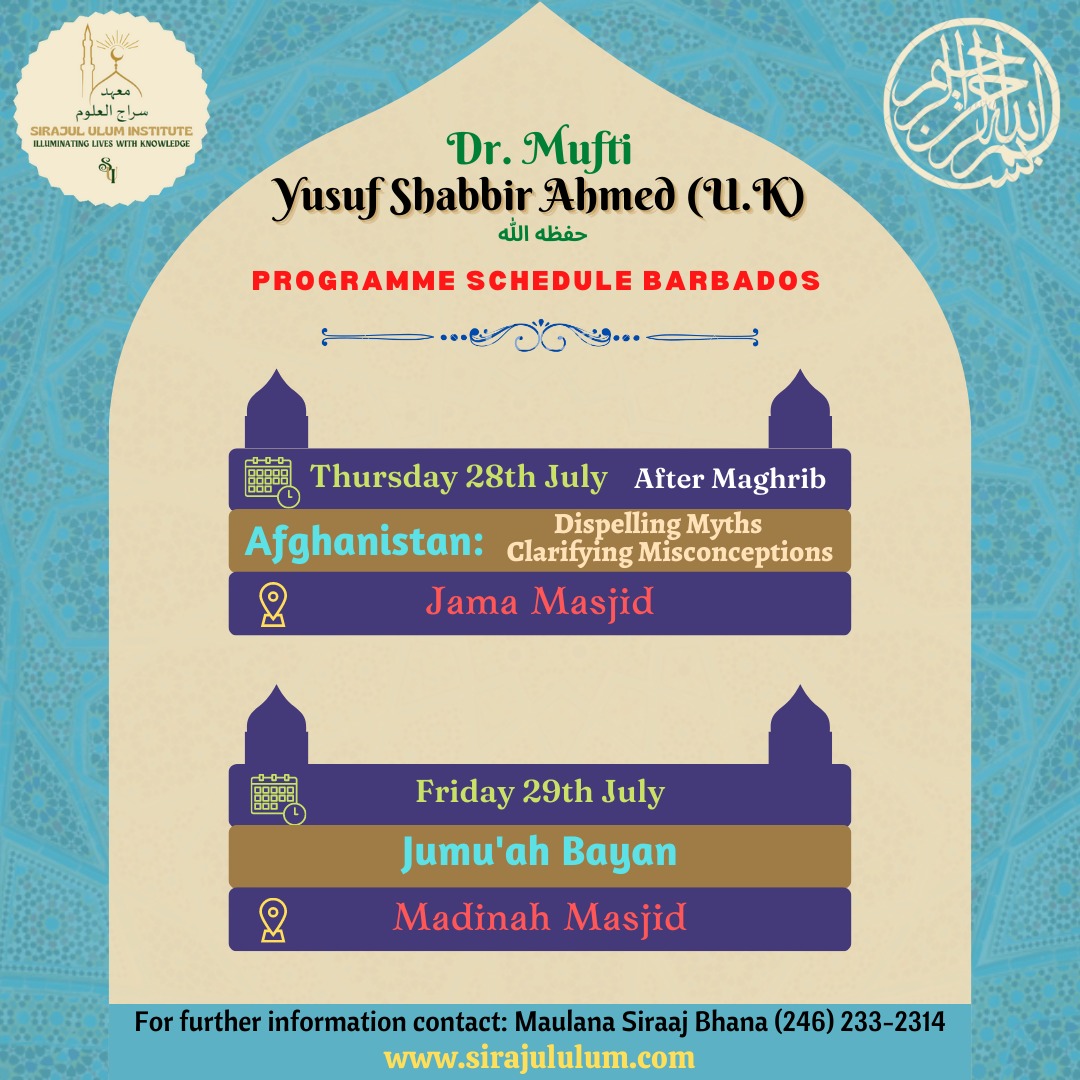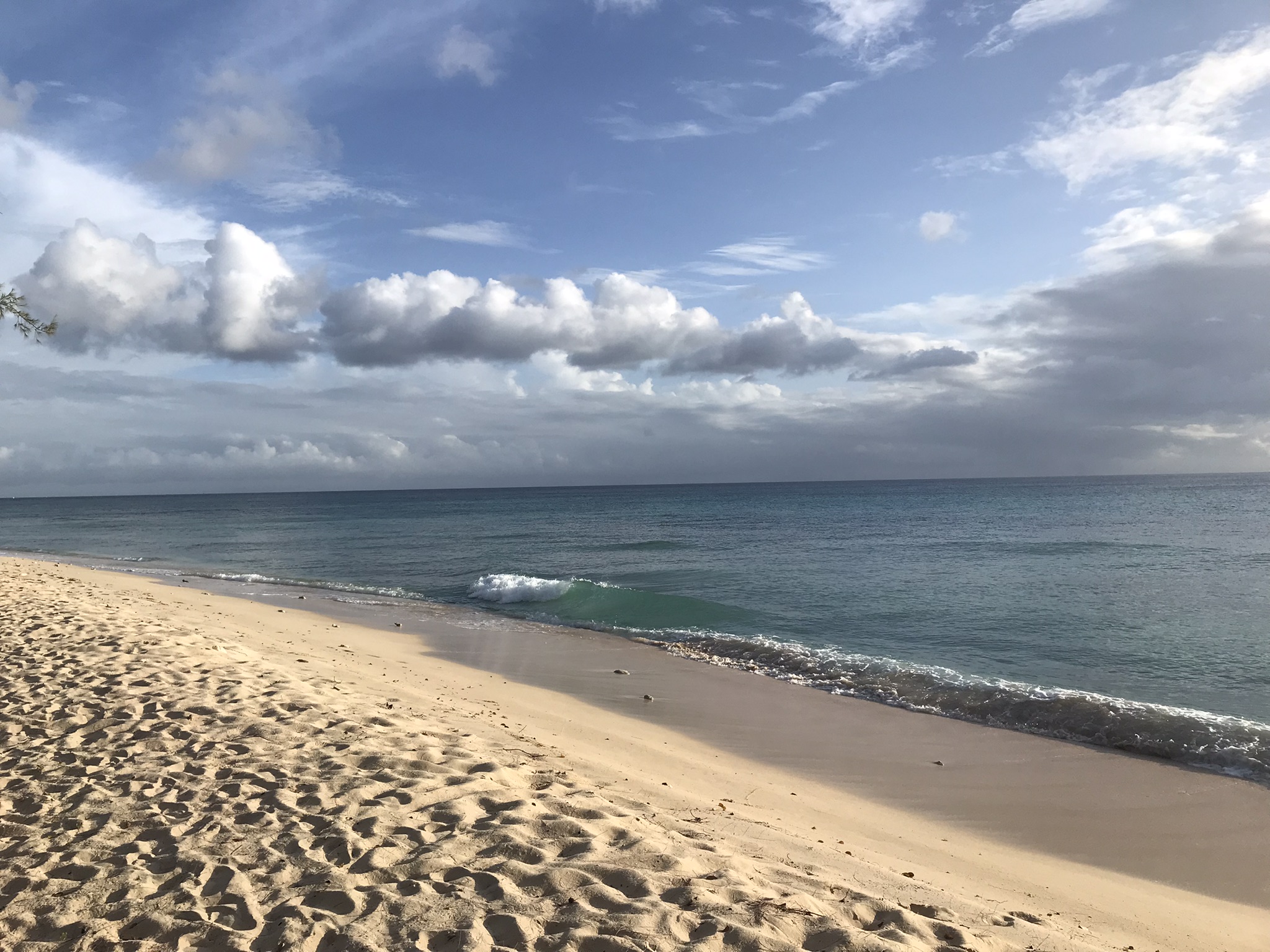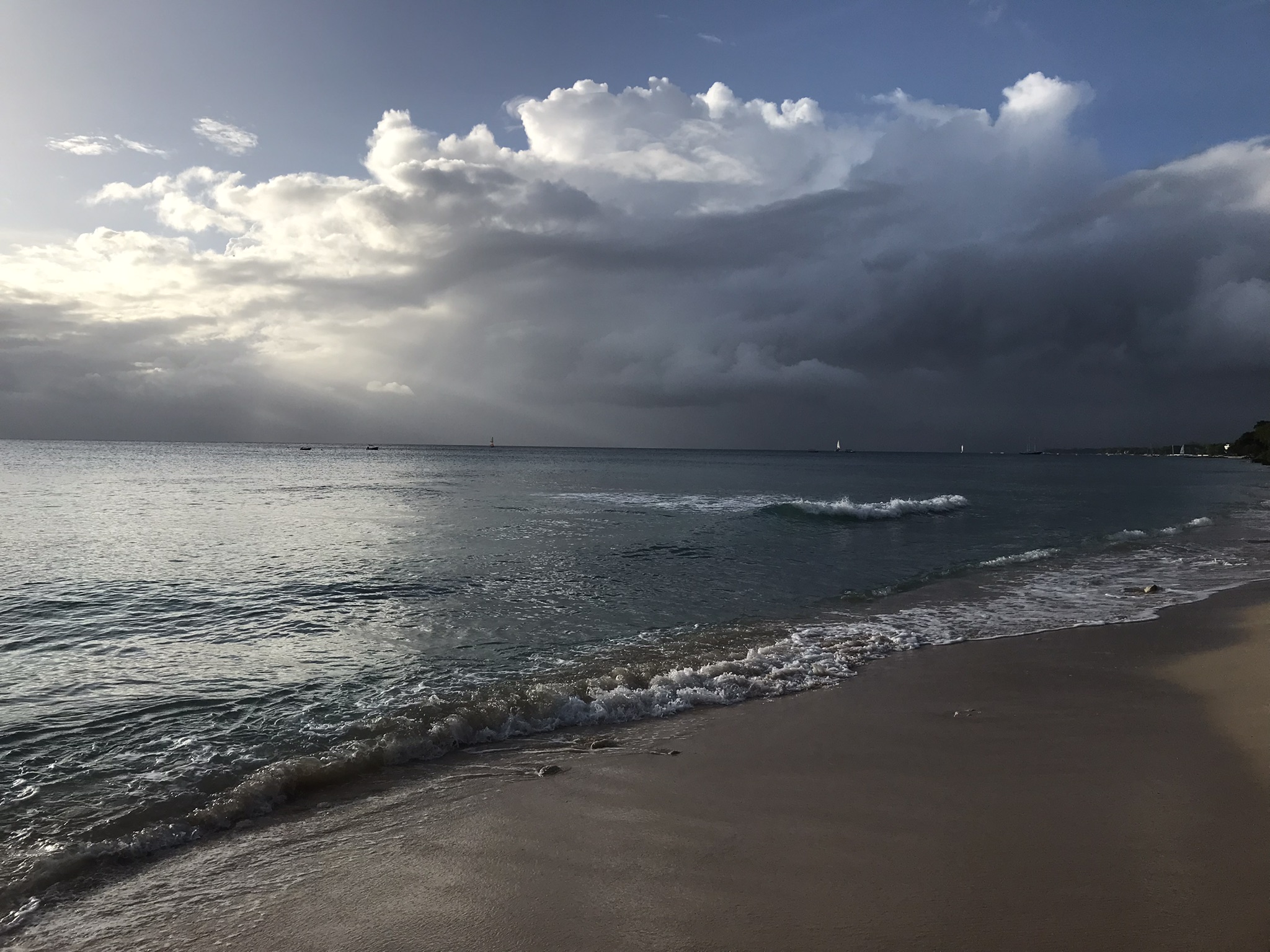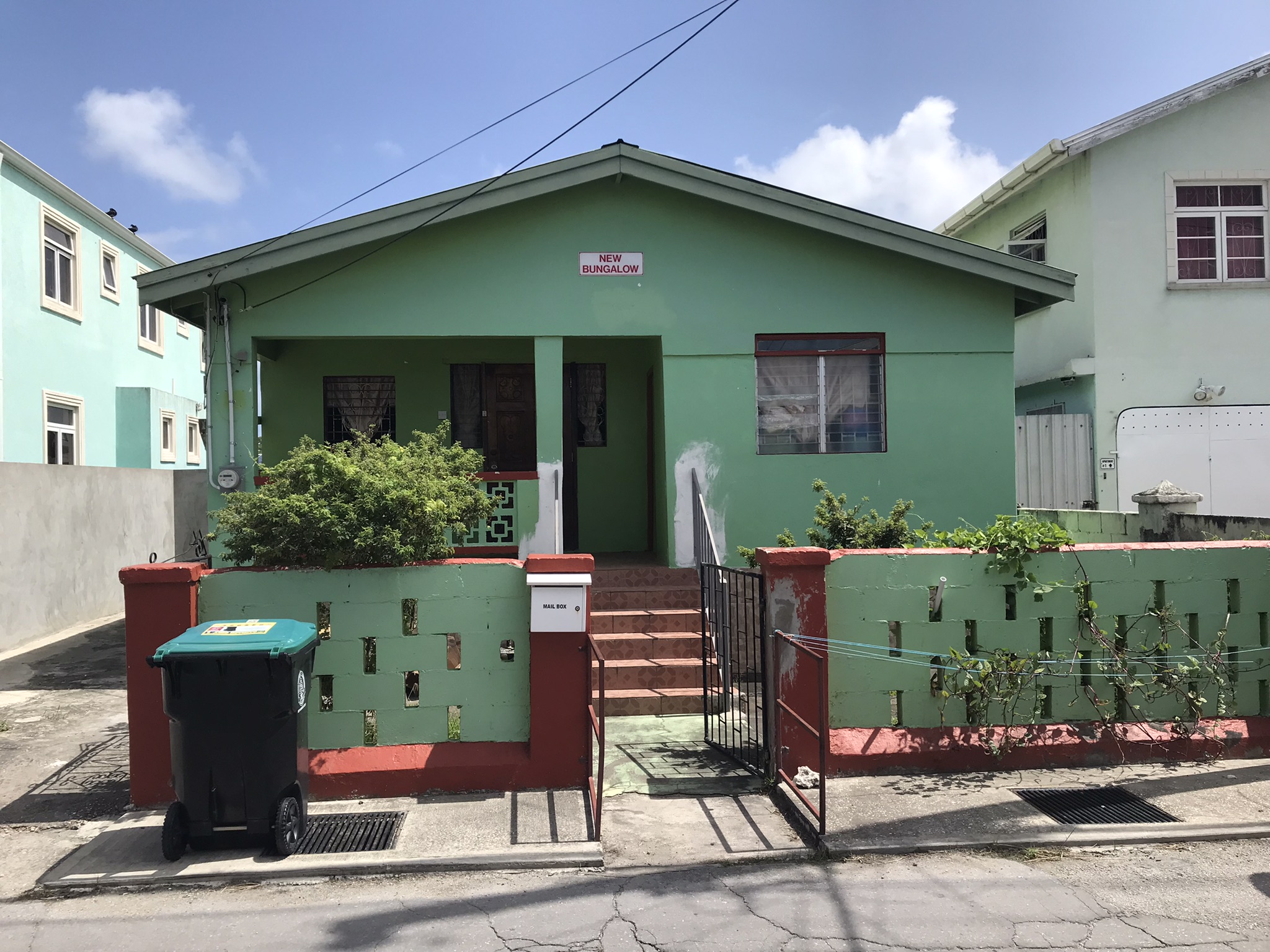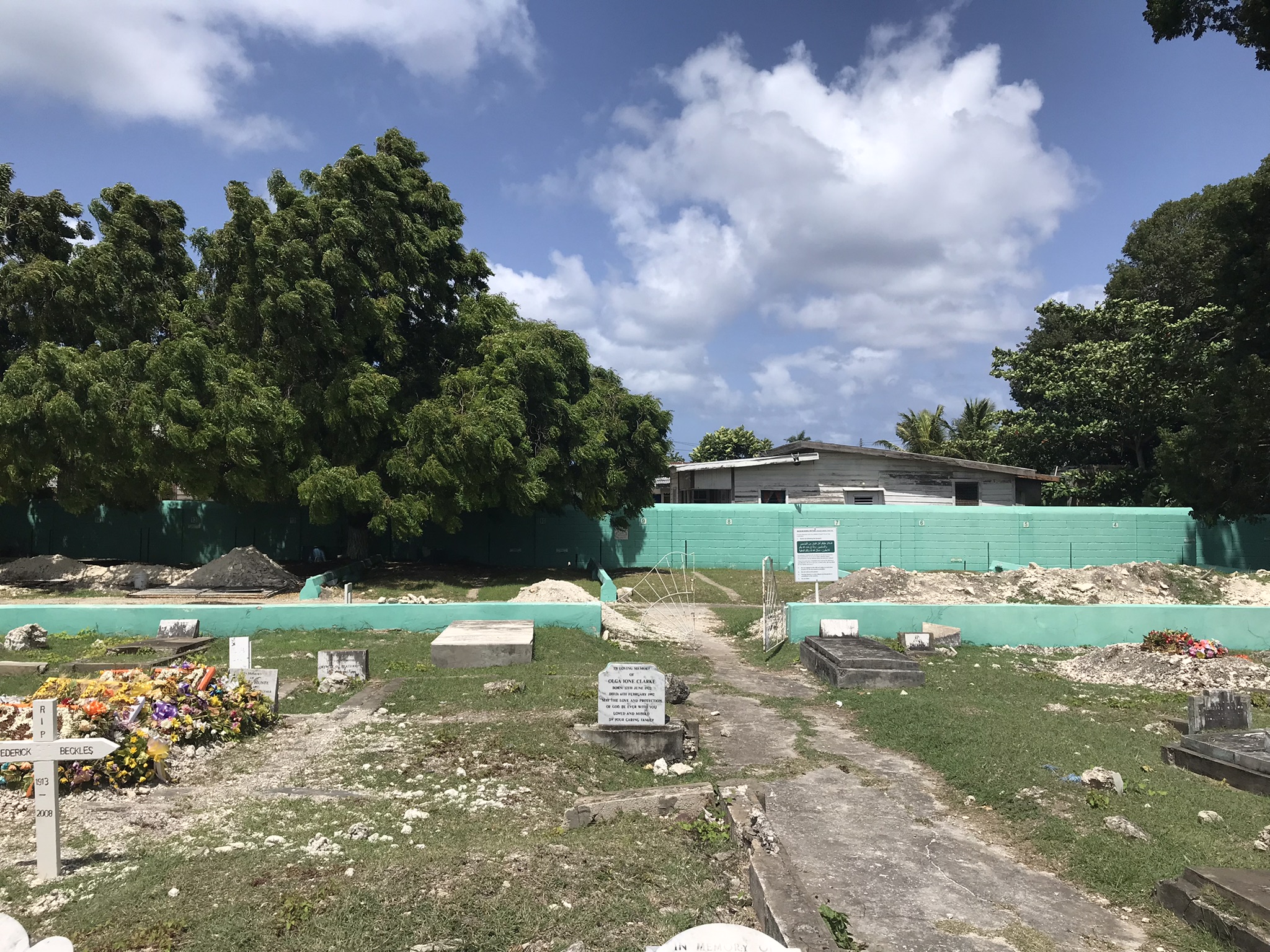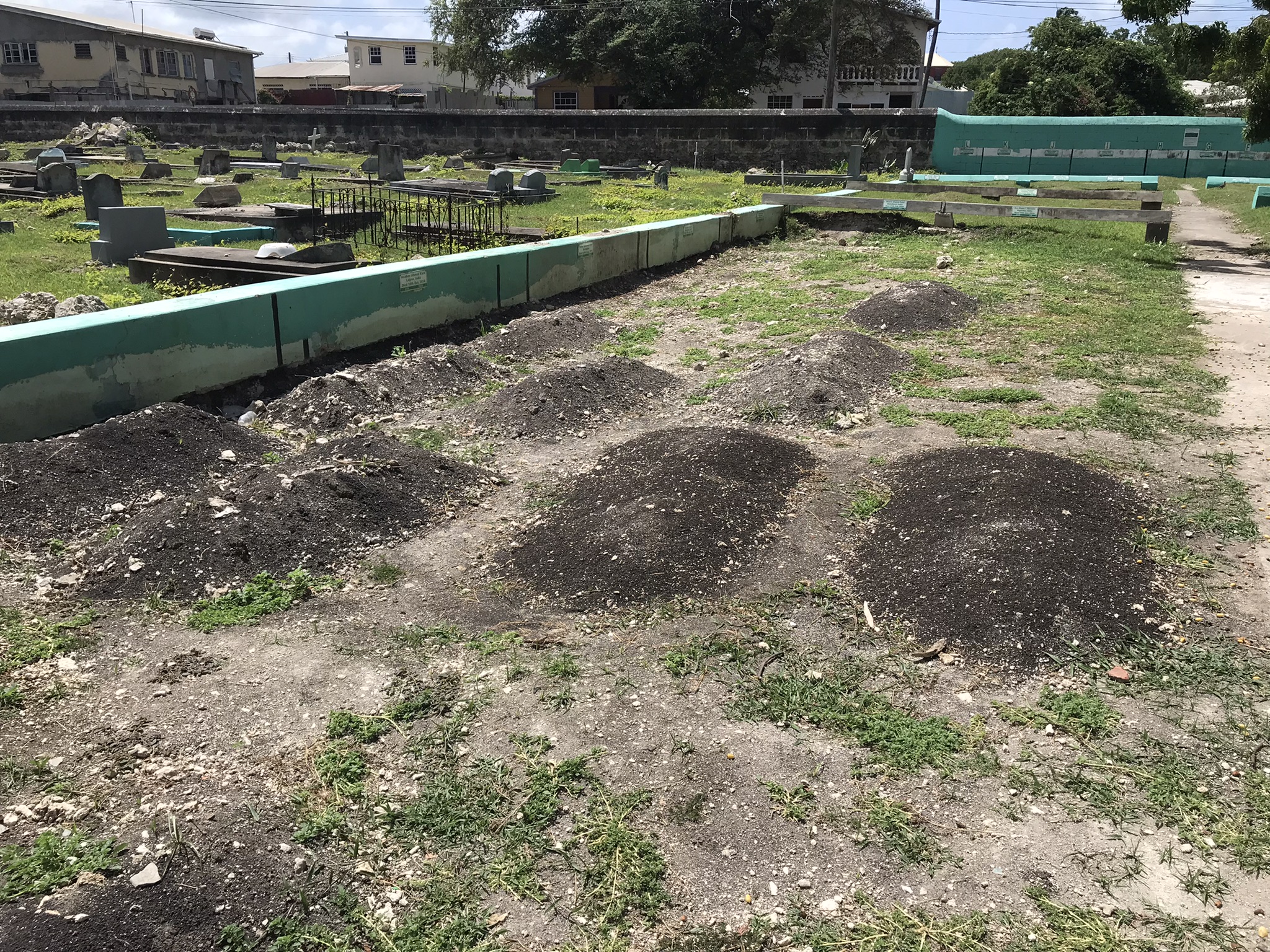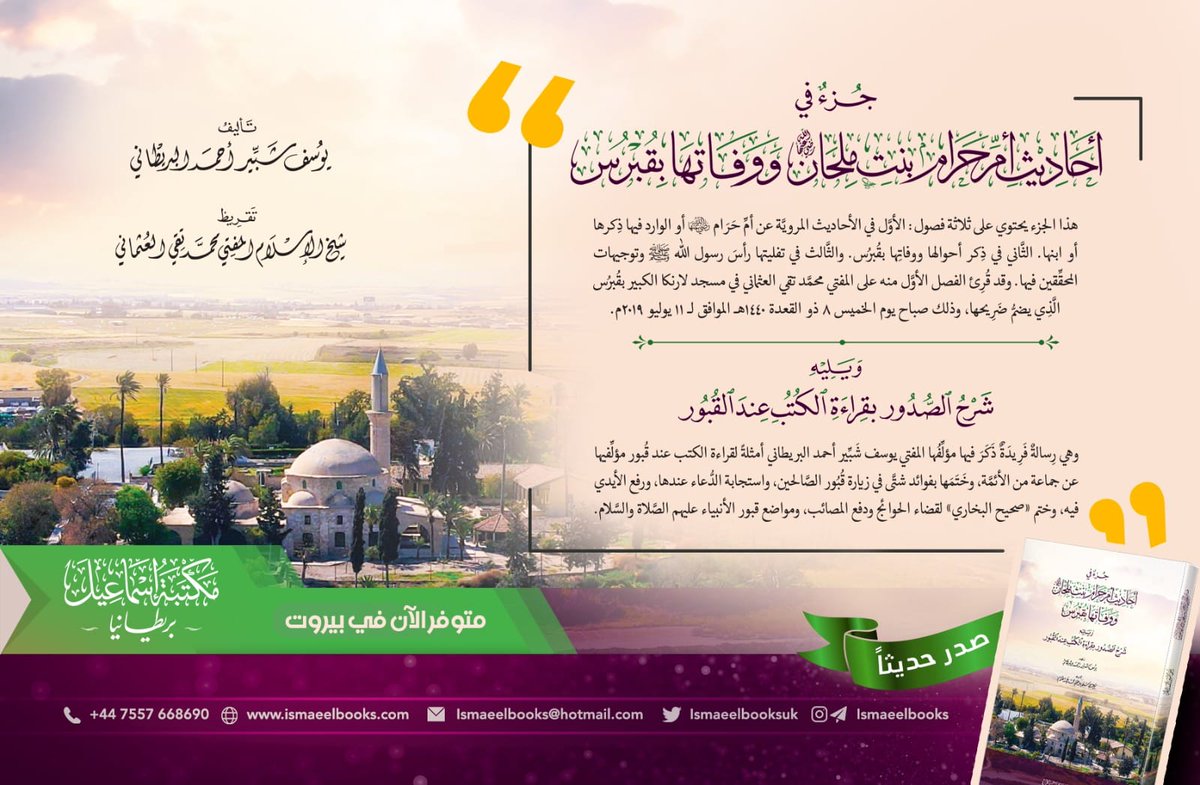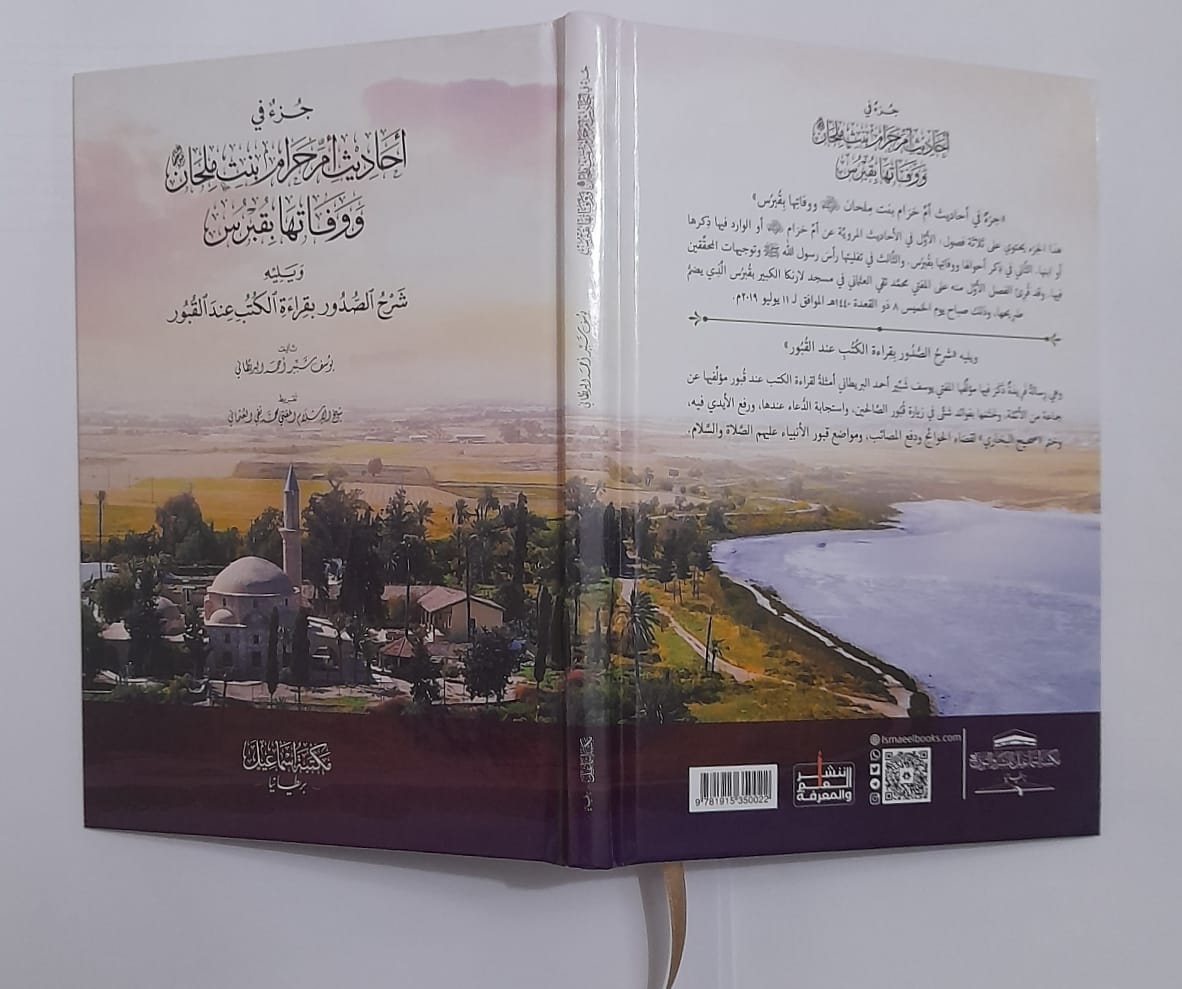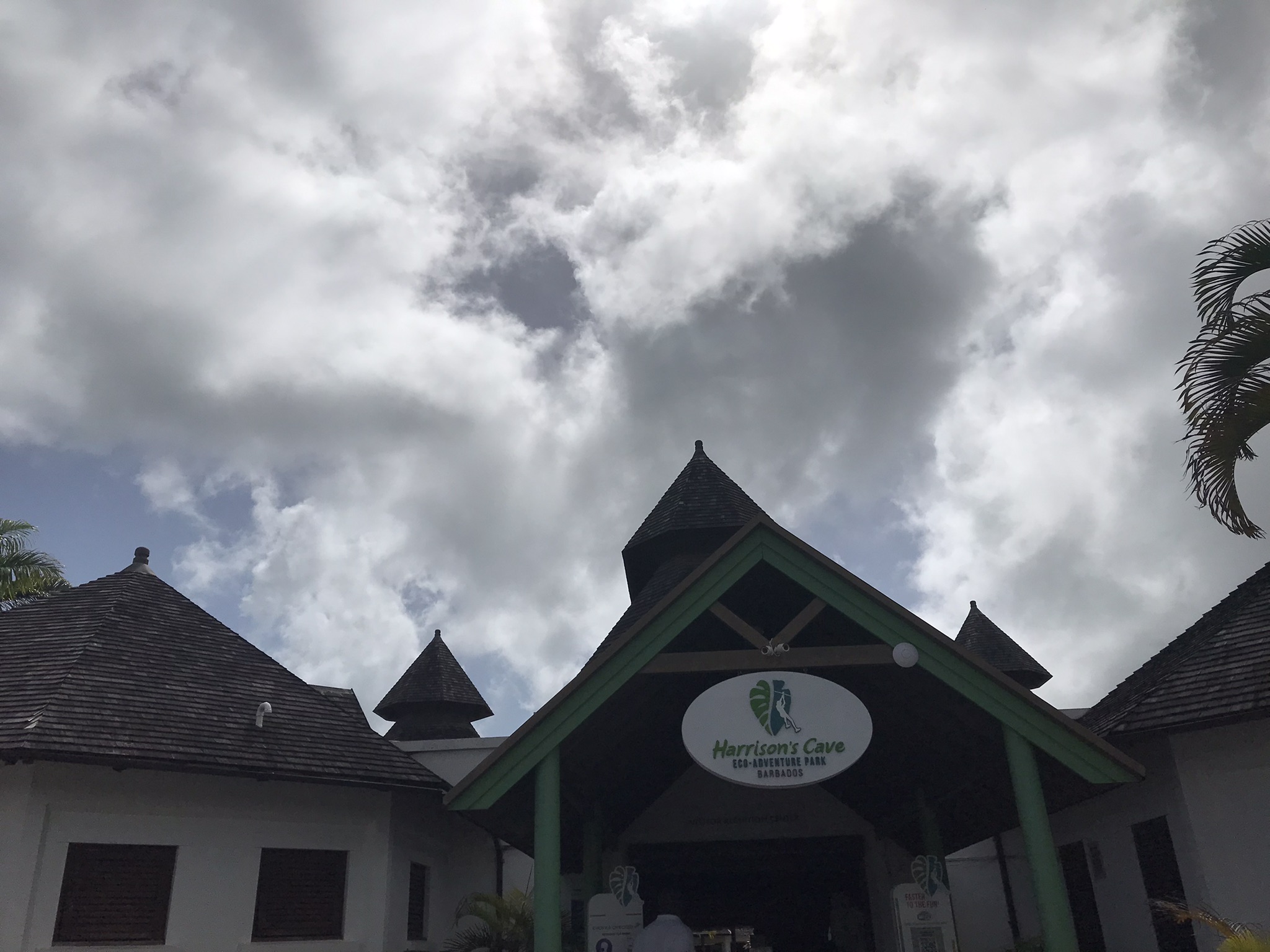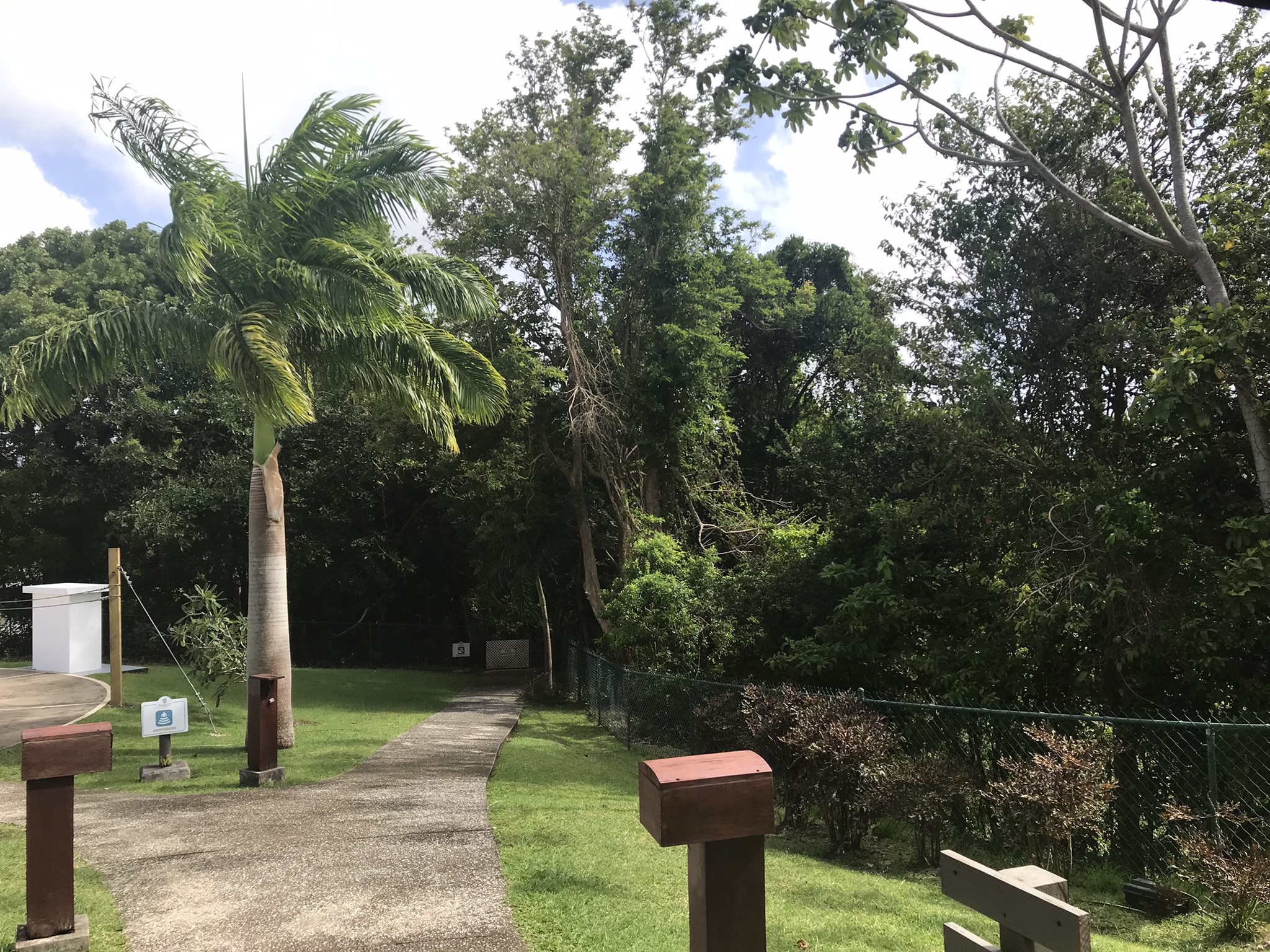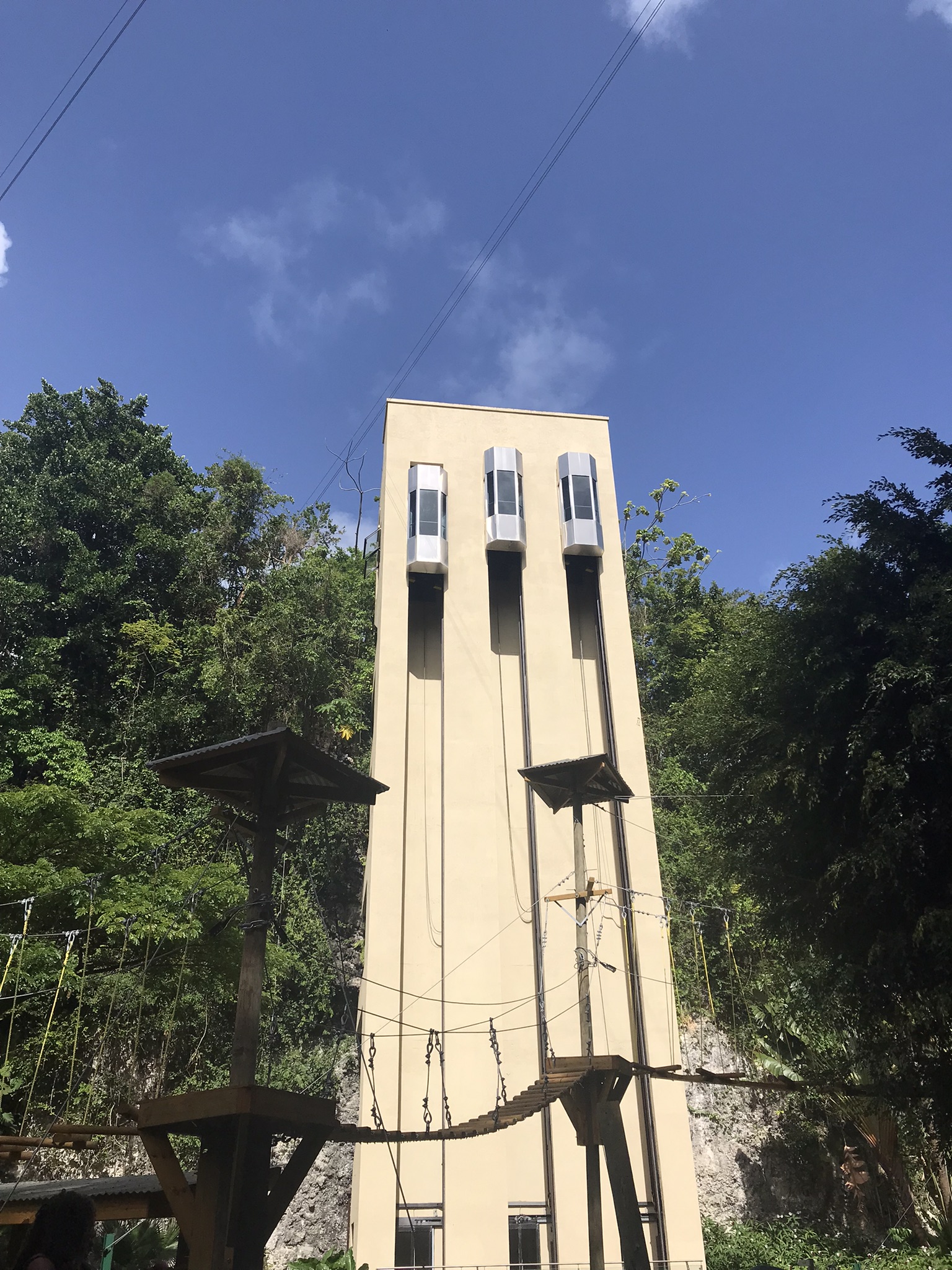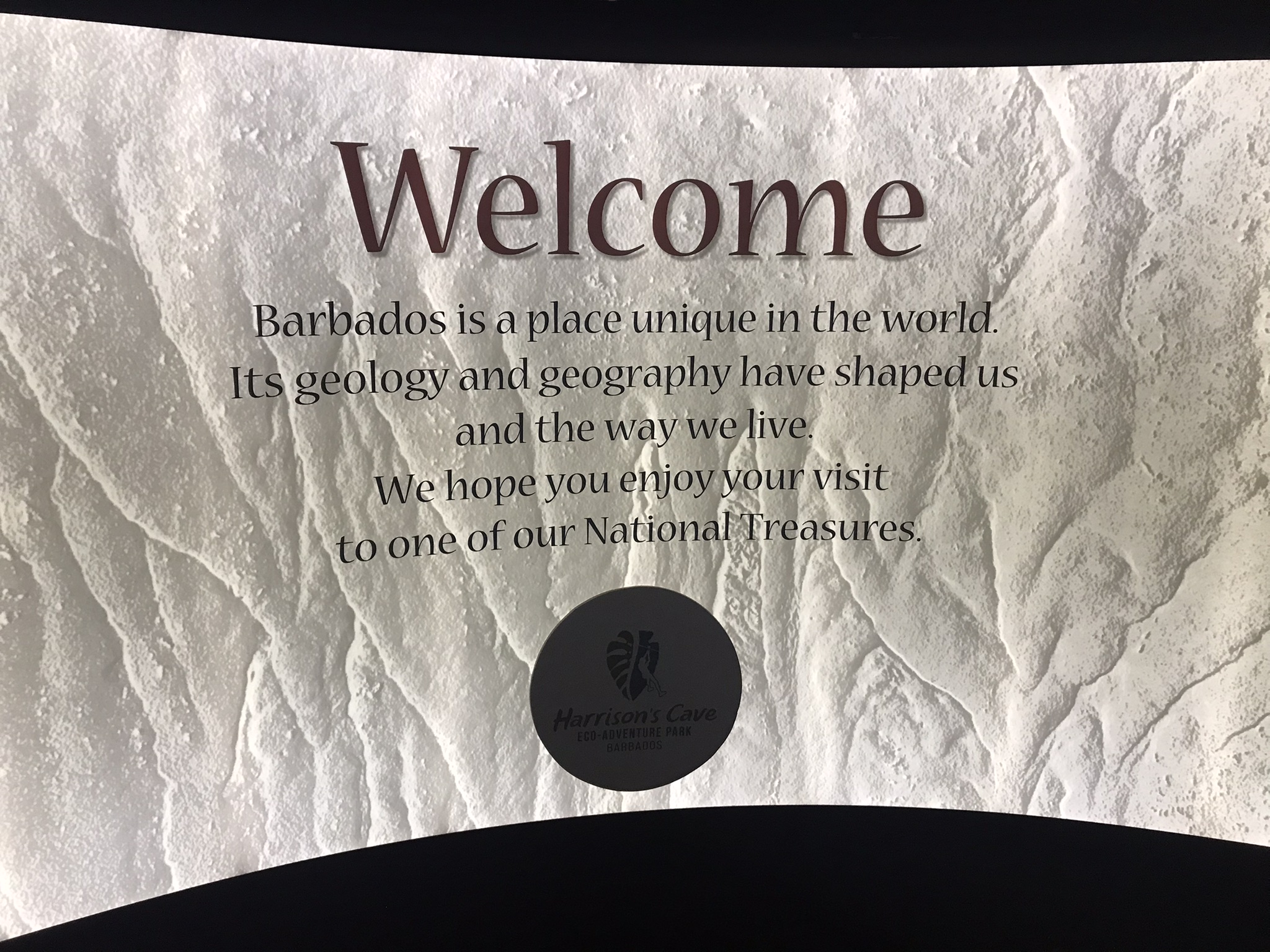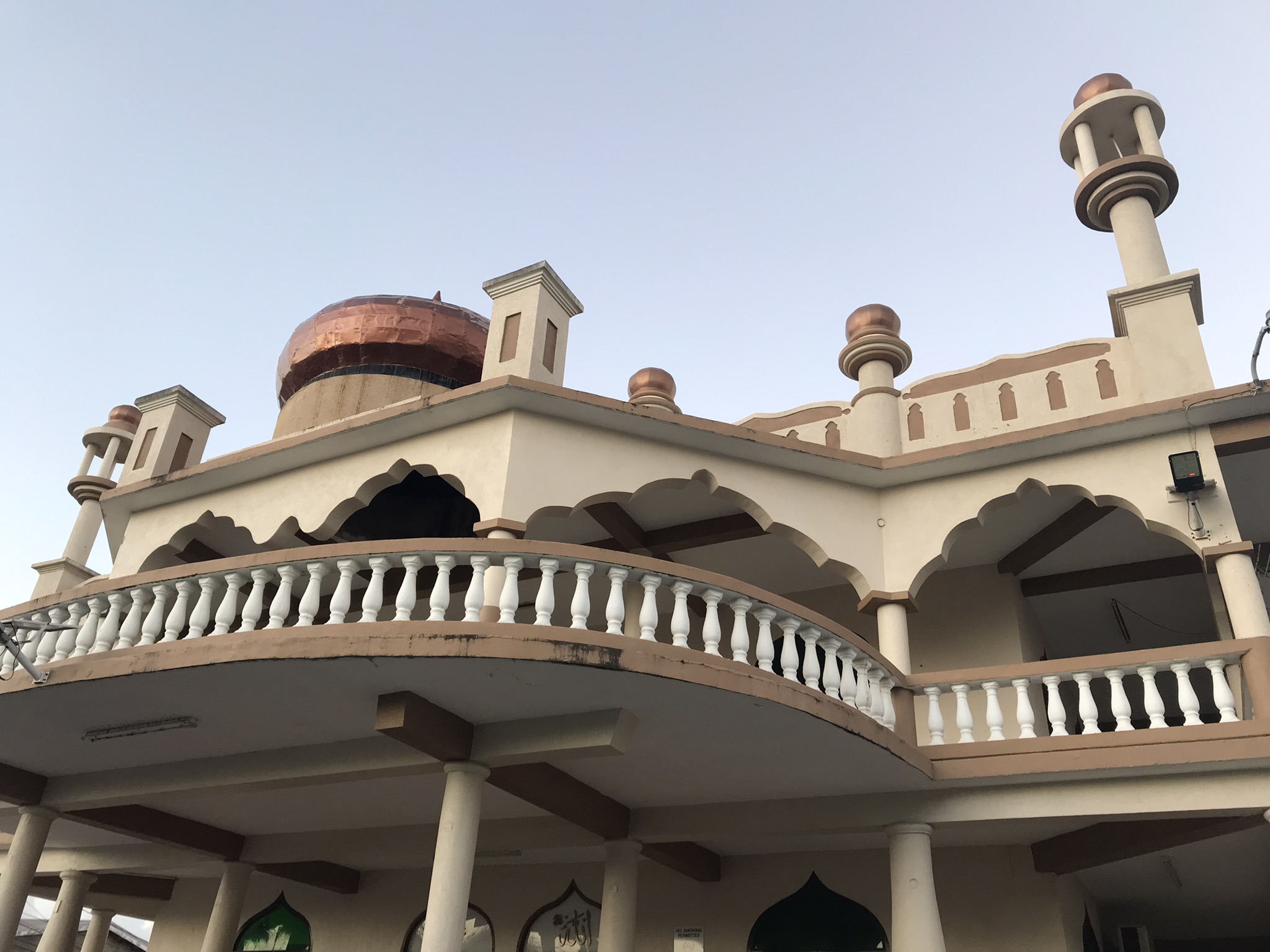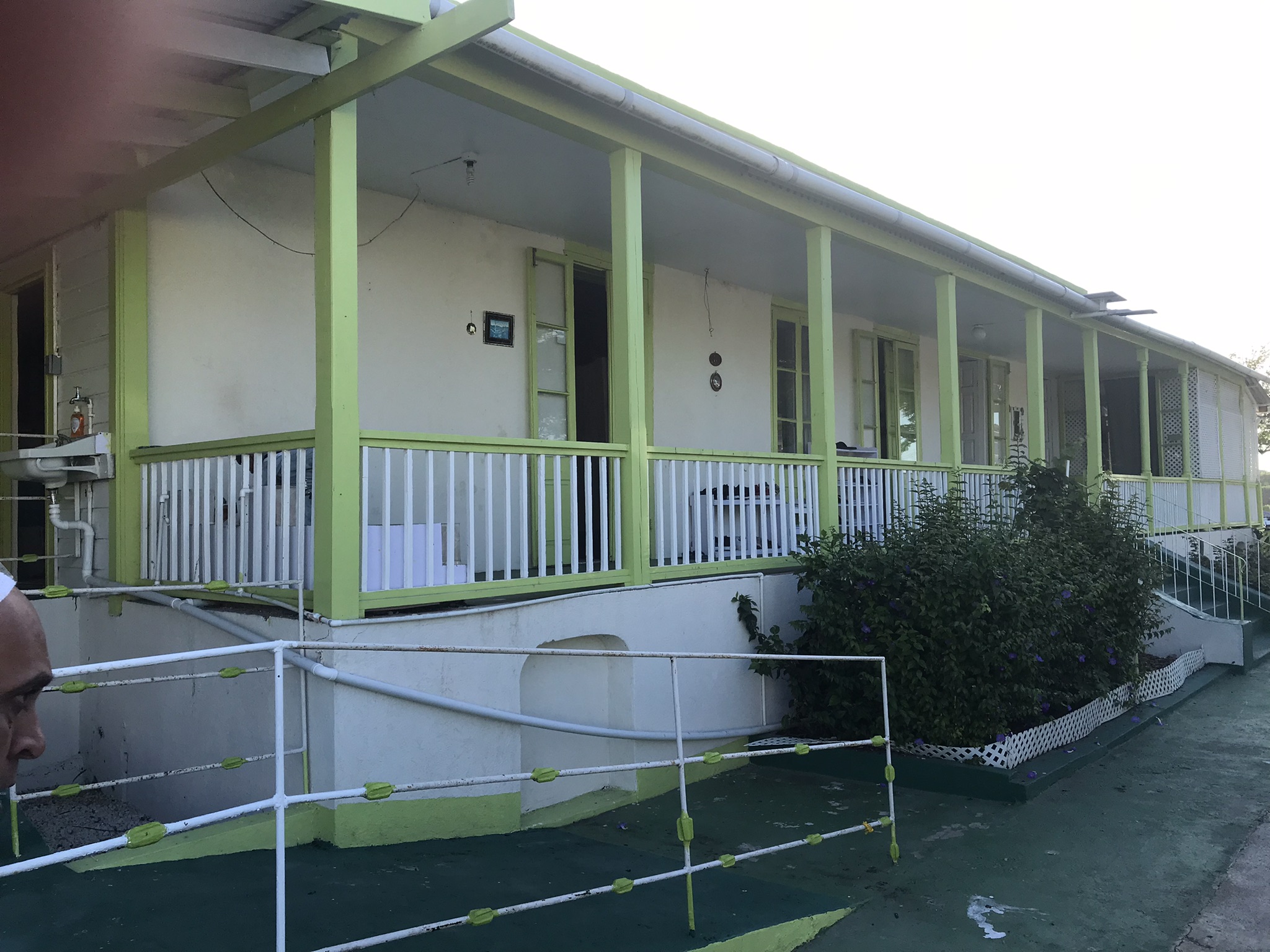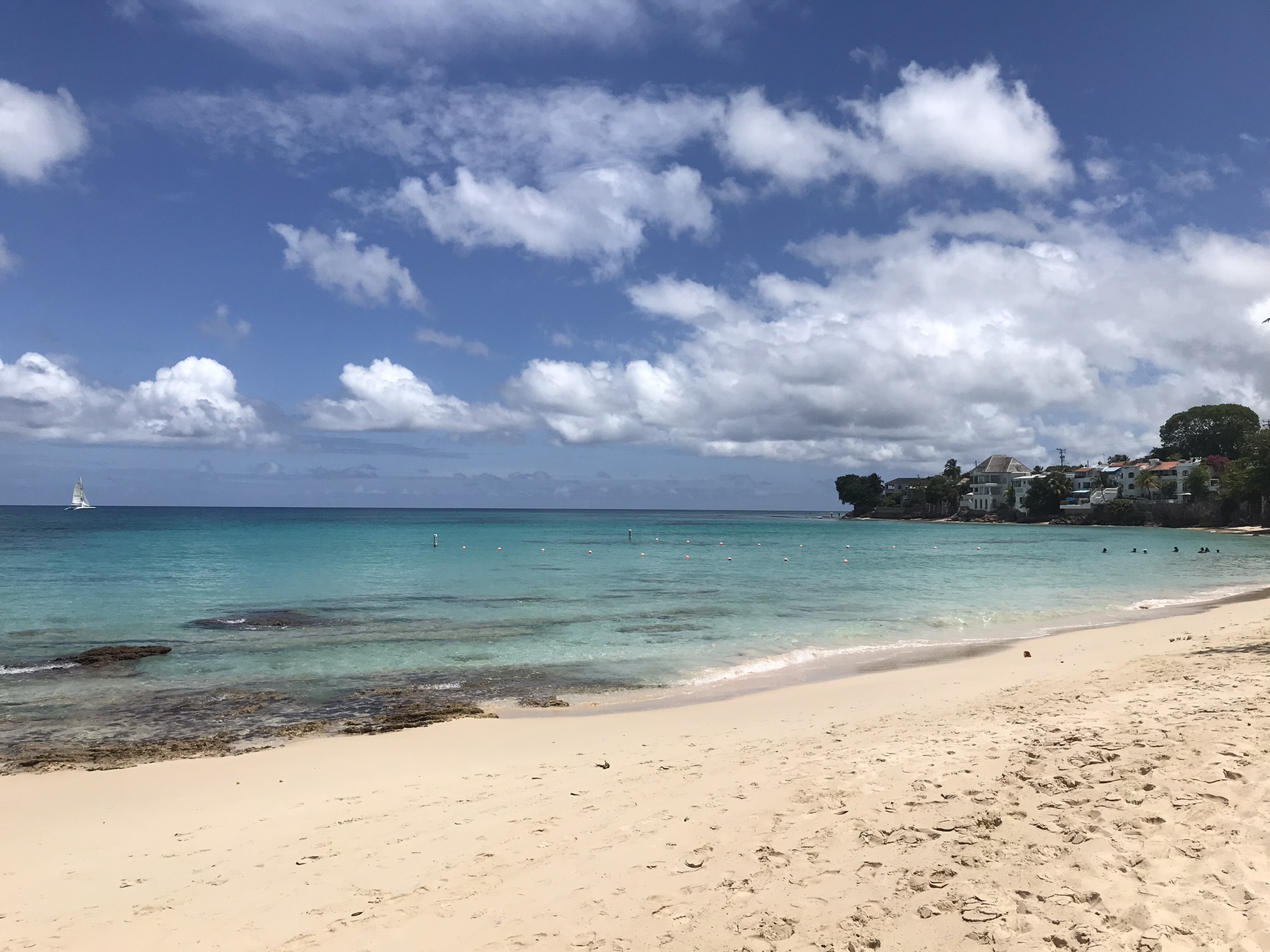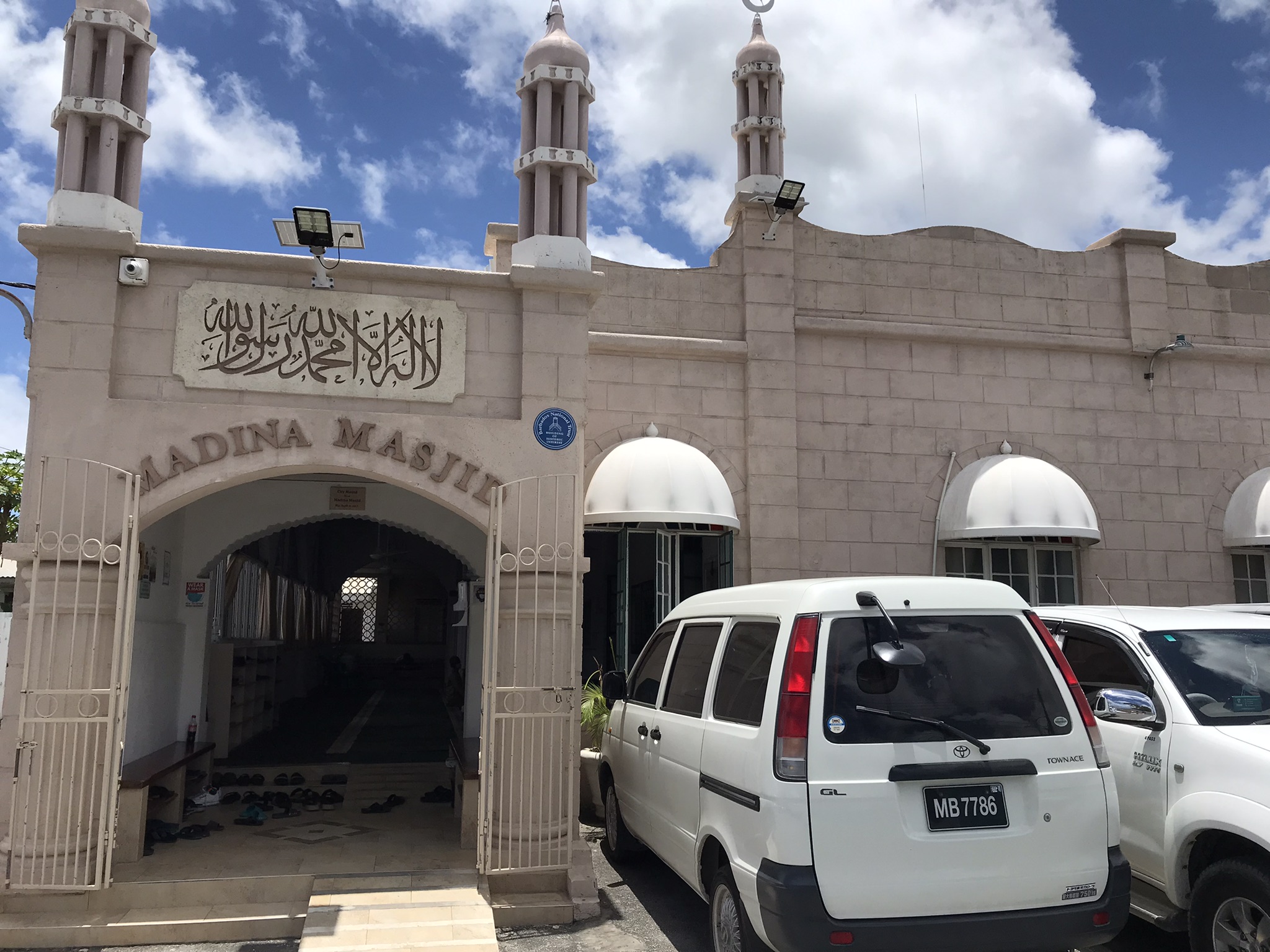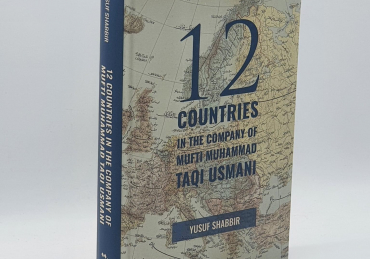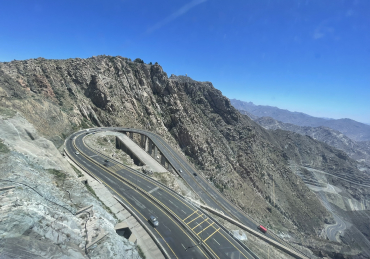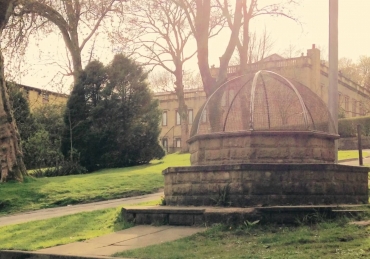A Memorable Week with Shaykh al-Ḥadīth Mufti Raḍāul Ḥaq in the UK and Barbados
In the Name of Allah, the Merciful, the Beneficent
Introduction
Shaykh al-Ḥadīth Mufti Raḍāul Ḥaq Ṣāḥib (b. 1369/1950) is among the world’s leading Ḥanafī jurists whose Fatwa collection named Fatāwā Darul Uloom Zakariyya has widespread acceptance. My respected father Mufti Shabbīr Aḥmad (b. 1376/1957) has known him since his days of study in Binori Town, Karachi in 1976 and decided to invite him to Darul Uloom Blackburn’s 22nd annual graduation ceremony. He and our Principal Mufti ʿAbduṣṣamad Ṣāḥib requested my friend, Mawlānā Khalīl Aḥmad Kāzī to make the necessary arrangements. The programme was initially scheduled to take place before Eid al-Aḍḥā. However, his visa did not arrive in time. Therefore, 24 July was fixed for the graduation ceremony and it was hoped that his visa would come.
My respected father travelled for Hajj and I travelled to India. On Wednesday 20 July, we received the information that Mufti Ṣāḥib’s visa had come. Thus, his ticket was booked. I returned to the UK on Thursday 21 July and the following morning on Friday, Mufti Ṣāḥib landed at London Heathrow. My respected father also cut his journey short and arrived into Manchester on Friday morning.
Over the coming days, I had the honour of spending time in the company of this great luminary and travelling with him, enabling me to benefit from his ocean of knowledge and profound intellect. I thus thought it beneficial to collate the pearls and gems into an article, and Tawfīq is from Allah alone.
PART 1
Day 1 – Friday 22 July 2022
Arrival into the UK
Mufti Raḍāul Ḥaq Ṣāḥib arrived at London Heathrow in the morning, accompanied by his assistant Mawlānā Bilāl. He was collected by Mawlānā Naeem Data who travelled with Mufti Ṣāḥib to Bradford. After Jumuʿah Ṣālāh, Mufti Ṣāḥib travelled to Batley and ate lunch and rested at the residence of Mawlānā Khalīl Aḥmad Kāzī’s father.
At 5.30pm, we depart from Blackburn in my car with my respected father, Mufti ʿAbduṣṣamad Ṣāḥib and Mawlānā Khalīl ibn Mawlānā Hāshim Ṣāḥib. We arrive Batley at 6.30pm and first visit the residence of Dr Imtiyāz, the dentist and our family friend who is currently unwell. May Allah Almighty grant him ʿĀfiyah and a speedy recovery.
We then arrive at the residence of Mawlānā Khalīl Aḥmad Kāzī’s father where Mufti Ṣāḥib had been resting. Mufti Ṣāḥib enters the sitting room a short while later and greets everyone. I had only met Mufti Ṣāḥib previously once. This was approximately 15 years ago, when Mufti Ṣāḥib visited Blackburn and delivered a lecture at Masjid Noorul Islam on the Ḥadīth “Seven people, Allah will grant them shade on the day there will be no shade other than His shade” (Ṣaḥīḥ al-Bukhārī, 660).
Mufti Ṣāḥib and my respected father meet and enquire about each other’s wellbeing. Mufti Ṣāḥib enquires about me and comments that “he writes well”. My first impression of Mufti Ṣāḥib is that he is extremely humble, simple and down to earth, with no takalluf (pretentiousness), something I experienced first-hand in the coming days. His face is illuminated, reminding me of the ḥadīth that Allah illuminates the faces of those who transmit ḥadīths (Sunan Abī Dāwūd, 3660; Sunan al-Tirmidhī, 2656).
Completion of Ṣaḥīḥ Muslim at Madina Academy, Dewsbury
After ʿAṣr Ṣalāh, the completion of Ṣaḥīḥ Muslim programme commences at Madina Academy, founded by Mawlānā Khalīl Aḥmad Kāzī. Many of the senior scholars of Batley and Dewsbury are present.
After recitation of the Quran, my respected father Mufti Shabbīr Aḥmad is requested to say a few words regarding Mufti Ṣāḥib. My respected father describes Mufti Ṣāḥib as a unique person who has mastery over all the Islamic sciences in addition to poetry. He adds:
“I remember the time in 1976 when as a student in Binori Town, I would see Mufti Raḍāul Ḥaq Ṣāḥib spending hours of the night regularly in the Masjid doing Muṭālaʿah. His Maqāmāt lessons were famous. Allah has blessed him with profound and in-depth knowledge. There are very few scholars who have mastered all the sciences in the way that he has.”
a) al-Ḥadīth al-Musalsal bi al-Awwaliyyah
Mufti Ṣāḥib begins his speech by reading the Ḥadīth al-Raḥmah, also known as the al-Ḥadīth al-Musalal bi al-Awwaliyyah and informs the congregation that he transmits this ḥadīth from Mufti Maḥmūd Ḥasan Gangohī (d. 1417/1996) and Shaykh Muḥammad Yūnus Jownpūrī (d. 1438/2017). He proceeds to mention their Asānid and whilst mentioning Mawlānā ʿAbdul Qayyūm Budhānawī (البُڈهانوي) (d. 1299/1881-2), he makes reference to his father Mawlānā ʿAbd al-Ḥayy Budhānawī (d. 1243/1828, Nuzhat al-Khawāṭir, 7:1005) who was the Shaykh al-Islam in the army of Sayyid Aḥmad Shahīd (d. 1246/1831). This is followed by a mention of four scholars with the name ʿAbd al-Ḥayy; Shaykh ʿAbd al-Ḥayy Laknawi (d. 1304/1886), Shaykh ʿAbd al-Ḥayy al-Kattānī (d. 1382/1962) and Mawlānā ʿAbd al-Ḥayy Sūratī Kafletwī, who Mufti Ṣāḥib describes as a Muḥaqqiq (expert) scholar. Mufti Ṣāḥib cites what Shaykh ʿAbd al-Ḥayy Kattānī has written in Fihris al-Fahāris (2:730) about sharing the same name as Shaykh ʿAbd al-Ḥayy Laknawī and accordingly having hope from Allah to be a good successor of his.
Mufti Ṣāḥib then proceeds to mention the benefits of Musalsal narrations in terms of continuity of chains and no inqiṭāʿ (gaps) and also preservation of the mode of transmission. The six main categories of Musalsal narrations are also highlighted:
- Musalsal Qawlī, for example the ḥadīth “innī uḥibbuk”.
- Musalsal Fiʿlī, for example the ḥadīth of Muṣāfaḥah.
- Musalsal Makānī, for example, the ḥadīth regarding supplicating at the Multazam.
- Musalsal Zamānī, for example the ḥadīth of the day of Eid, or ʿĀshūrāʾ.
- Musalsal bi al-Ḥalat al-ʿĀriḍah, for example, smiling.
- Musalsal bi al-Ḥālat al-Dāʾimah, for example, if all the transmitters are jurists.
During the speech, Mufti Ṣāḥib recalls Shaykh Muḥammad Yūnus Jowpūrī’s statement that Samāʿ (listening to ḥadīths) is sustenance from Allah which is divided and that he missed out from hearing ḥadīths from Shaykh Muḥammad Yāsīn al-Fādānī (d. 1410/1990). Mufti Ṣāḥib comments that he also missed out despite having visited Saudi Arabia when Shaykh Fādānī was alive. He then proceeds to mention the story of Mufti Muhammad Taqi Usmani’s visit to al-Masjid al-Ḥarām on 10 Muḥarram and the encounter with Shaykh Fādānī. Mufti Ṣāḥib comments that this was Shaykh Fādānī’s kashf, sometimes Allah Almighty removes the veils. To affirm this, he cites Shaykh al-Islam Ibn Taymiyyah’s (d. 728/1328) kashf from the book of Ḥāfiẓ ʿUmar ibn ʿAlī al-Bazzār (d. 749/1349) Al-Aʿlām al-ʿAliyyah fī Manāqib Ibn Taymiyyah (p. 57) and describes Ibn Taymiyyah as ʿAllāmah.
During the discussion, he cites the supplication to be read when praised by someone, transmitted in Shuʿab al-Īmān (4534) and other books:
اللهم لا تؤاخذني بما يقولون واغفر لي ما لا يعلمون واجعلني خيرا مما يظنون
b) Imam Muslim and Nishapur
Mufti Ṣāḥib then proceeds to shed light on Khurāsān Ṣagīr and Khurāsān Kabīr. Khurāsan Ṣagīr is much of modern-day Iran including Nishapur and Qom. Khurāsan Kabīr includes this, but also Western and Northern Afghanistan along with Uzbekistan, Tajikistan, and Turkmenistan. As for Kabul, there is a difference of opinion whether it is from Khurāsān or Sijistān. Sijistān includes the Balochistan of Iran and Pakistan, along with Eastern and Southern Afghanistan. Peshawar is also part of Sijistān. Mufti Ṣāḥib explains, “‘Khur’ means sun and ‘stan’ means place, so the meaning of Khurāsān is the place of heat. This is in contrast with the region above this, Russia and China, where the climate is cooler and there is less sun.” Mufti Ṣāḥib is an expert in Arabic, Persian and Urdu as evident from his writings and poetry.
c) Khamr
Mufti Ṣāḥib briefly explains the final few ḥadīths of Ṣaḥīḥ Muslim. In relation to the ḥadīth on Khamr, Mufti Ṣāḥib comments:
“Nowadays, everyone is in need of the ḥanafī position, because alcohol is found in medicines.”
Mufti Ṣāḥib’s speech is full of pearls and gems, extracted from a range of sources and disciplines. His delivery style is structured and easy to follow. When Mufti Ṣāḥib digresses, he returns to the point at hand.
Magrib Ṣalāh is performed and dinner is served thereafter at Madinah Academy.
From Dewsbury to Blackburn
After dinner, I drive Mufti Ṣāḥib to Blackburn, with my respected father, Mufti ʿAbduṣṣamad Ṣāḥib and Mawlānā Bilāl, Mufti Ṣāḥib’s assistant. Many things are discussed on route.
Mufti Ṣāḥib comments:
“Shaykh Yūnus Ṣāḥib was full of knowledge, from head to toe.”
My respected father mentions to us later that Mufti Ṣāḥib mentions Shaykh Yūnus Ṣāḥib frequently despite the latter having scolded him once. This demonstrates Mufti Ṣāḥib’s open-heartedness and sincerity.
My respected father informs Mufti Ṣāḥib that he was with Mawlānā Shabbīr Ṣalūjī (b. 1370/1951, the Principal of Darul Uloom Zakaria, South Africa) in Ḥajj together and they regularly meet in Makkah al-Mukarramah throughout the year. My father mentions that Mawlānā Shabbīr Ṣāḥib performs two ʿUmrah daily. Mufti Ṣāḥib responds, “Mawlawī Shabbīr kow Makkah mey Junūn howjātā hey”.
In relation to visits to India, Mufti Ṣāḥib comments, “I have visited India many times. The era of Manmohan Singh was much better. Now it is very difficult.”
Mufti Ṣāḥib praises Shaykh Shuʿaib al-Arnaʾūṭ (d. 1438/2016). He says, “He had a lot of Istiḥḍār of knowledge. He was soft natured and was very good.” He adds:
“Some of the Arab Muḥaddiths like Shaykh Shuʿaib al-Arnaʾūṭ and Shaykh Bashshār ʿAwwād are gentle by nature, whereas the Muḥaddīths of our region, Ḥaḍrat Binorī and Shaykh Yūnus Ṣāḥib had jalāl within them.”
Mufti Ṣāḥib asks my respected father how many years he spent in the service of Shaykh Yūnus Ṣāḥib. My father replies, “three years”. Mufti Ṣāḥib comments: “Isī mey āpkā Taṣawwuf howgayā” (Your Taṣawwuf was complete in this).
We arrive Darul Uloom Blackburn at approximately 11.15pm and perform ʿIshāʾ Ṣalāh.
Mawlānā ʿAlī Māyat
A short while later, Mawlānā ʿAlī Māyat Ṣāḥib comes to visit Mufti Ṣāḥib. Mawlānā was Mufti Ṣāḥib’s host on his previous visits. Mufti Ṣāḥib recalls that “Mawlānā ʿAlī Māyat Ṣāḥib would do Khidmat of Ḥaḍrat Binorī and Hadrat Binorī would place his hands on his shoulder. If someone else would step in to do Khidmat, he would retreat and allow the person to do Ḥaḍrat Binorī’s Khidmat. He would not be obstructive at all.” Mawlana has not been too well recently, Allah Almighty grant him ʿĀfiyah.
It has only been a few hours in the company of Mufti Ṣāḥib. I am struck by his simplicity and humility.
Day 2 – Saturday 23 July 2022
Programmes across Lancashire
Breakfast at residence of Mufti Shabbir Ahmad
I collect Mufti Ṣāḥib from Darul Uloom Blackburn at 8.30am and bring him to the residence of my respected father for breakfast. Mufti Ṣāḥib recollects the trip to Turkey in 2014 for the Imam Qasim Nanotwi Award Conference, also attended by my father, describing it “a memorable journey.” He adds, “I understood your objection about Abū Ayyūb al-Anṣārī’s grave and its location on the Europe side of Istanbul.”
My respected father shows Mufti Ṣāḥib many books, some of which are published by Shaykh Niẓām Yaʿqūbī (b. 1378-9/1959). Mufti Ṣāḥib says:
“Shaykh Niẓām is a Muwaffaq person”.
In relation to the commentaries of Sunan al-Tirmidhī, Mufti Ṣāḥib says, “We have many commentaries of Sunan al-Tirmidhī, but many a times Tuḥfat al-Aḥwadhī is needed to understand the text. He had more inṣāf (impartiality) within him than many current Salafīs.”
Various other issues are discussed. Mufti Ṣāḥib says:
- “Whenever a new book arrives, I look at the contents page and mark any new or interesting topic.”
- “We visited Imam Bukhārī’s grave in Uzbekistan. When we entered the room wherein lies the grave, everyone started to cry involuntarily. He was a great personality. His faqāhat (profound understanding) can be understood from the Chapter of Buyūʿ in his Ṣaḥīḥ, some edicts therein are not found in standard Fiqh books.”
- “Your Yusuf writes well. I have read his writings.”
- “My teacher Mufti Farīd Ṣāḥib [the author of the succinct Arabic commentary of Sunan al-Tirmidhī and Fatāwā Farīdiyyah] was an expert on talkhīṣ (abridging). I studied Tafsīr with him.”
In relation to the ḥadīth commentaries authored by the current Chief Justice of Afghanistan, he comments, “Mawlawī ʿAbd al-Ḥakīm Haqqānī’s Arabic is very good. He is an expert. He has written a book on Islamic system of governance.”
I gift some of my books to Mufti Ṣāḥib. Mufti Ṣāḥib comments in relation to al-Sirāj al-Wahhāj:
“This book should be taught in girls’ Madāris” and makes reference to how some texts of jurists are misused.
Mufti Ṣāḥib also says:
“ʿAllāmah Ṣiddīq Bāndwī Ṣāḥib [d. 1418/1997] would say, ‘whoever taught Ṣaḥīḥ al-Bukhārī should be the one to complete it. He was full of humility and genuine humility. He was an amazing person.”
My respected father comments that ʿAllāmah Ṣiddīq Ṣāḥib would always invite Shaykh Yūnus Ṣāḥib for the completion of Ṣaḥīḥ al-Bukhārī, an exemption, and so this exemption is extended to Mufti Ṣāḥib. Mufti Ṣāḥib is pleased to learn that Shaykh Yūnus Ṣāḥib would visit Darul Uloom Blackburn more or less every year.
In a subsequent gathering, Mufti Ṣāḥib comments, “ʿAllāmah Ṣiddīq Ṣāḥib was Ṣāḥib Kashf. He visited South Africa. Mawlānā Shabbīr Ṣāḥib asked him on behalf of someone for a baby’s name not yet born. Mawlānā Ṣiddīq Ṣāḥib said, ‘Luqman’. He was asked for a girl’s name also, he replied, ‘Luqmān’. The same reply was given the third time. Eventually, a boy was born and named Luqmān.” Mufti Ṣāḥib performed his Nikāḥ recently.
Mufti Ṣāḥib explains that the correct pronunciation of the word بي within Mawlānā Aṭhar’s poem: ترفق بي يا مولى الزبير، وزودني بفضلك كل خير is ‘biya’ not ‘bī’.
My respected father remembers Mawlānā Salmān Ṣāḥib (d. 1441/2020) and how his demise left a great void in Saharanpur. Mufti Ṣāḥib concurs and comments:
“Mawlānā Salmān Ṣāḥib was a very clever person. He knew Principalship (ihtimām).”
Qaṣīdah Burdah Lesson
At 10.30am, the Qaṣīdah Burdah lesson commences at Darul Uloom Blackburn. Several Arab scholars including Shaykh Niẓām Yaʿqūbī listen in. Mufti Ṣāḥib delivers the lesson in Arabic, explaining first why it is called Qaṣīdah Burdah. He also elaborates on the use of the term ʿIshq for Allah and the Prophet ﷺ. He critiques the position of Shaykh al-Islam Ibn Taymiyyah and his student Ḥāfiẓ Ibn al-Qayyim (d. 751/1350) who prohibit this. He explains that sometimes ʿIshq is combined with lust, and sometimes it is not, and this the same for the word Ḥubb. There is therefore no harm in using it. I note that Mufti Ṣāḥib is balanced in his criticisms and respectful. Mufti Ṣāḥib is widely read, and makes reference to Shaykh Aḥmad ibn Muḥammad ibn al-Ṣiddīq al-Gumārī’s (d. 1380/1960) book درء الضعف عن حديث: مَن عَشِق فعفَّ.
The entire Qaṣīdah Burdah is read. Mufti Ṣāḥib comments, “My father would teach Sirājī and Qaṣīdah Burdah every year in Shaʿbān [in Pakistan].”
Mufti Ṣāḥib grants ijāzah in the Qaṣīdah to all the attendees. He narrates it from Mufti Maḥmūd Ḥasan Gangohī. Shaykh Niẓām Yaʿqūbī also grants Ijāzah to everyone present. He read the Burdah to Shaykh ʿAbd al-Raḥmān al-Kattānī (b. 1338/1919), Shaykh Aḥmad ʿAlī Sūratī (d. 1432/2011) and most of it to Shaykh ʿAbdullāh ibn ʿAbd al-Qādir al-Talīdī (d. 1438/2017). Mufti Ṣāḥib requests him to share his Asānīd with him. A short while later, Shaykh Ziyād Tuklah who had missed some part on the internet stream phones to read the missed section. He also reads the first Ḥadīth of Ṣaḥīḥ al-Bukhārī and requests Ijāzah in Ḥadīth. Mufti Ṣāḥib grants Ijāzah and mentions two of his short Asānīd; one via Mawlānā ʿAzīz Gul, from Mawlānā Nūr al-Ḥasan Deobandī, from Mawlānā ʿAbd al-Raḥmān Pānīpattī (d. 1314/1896) from Shāh Muḥammad Isḥāq (d. 1262/1846); the other via Mawlānā Naṣīr al-Dīn Khan, from Mawlānā ʿAbd al-Raḥmān Amrohī (d. 1367/1948), from Mawlānā Faḍlurraḥmān Ganjmurādābādī (d. 1313/1895) from Shāh ʿAbd al-ʿAzīz (d. 1239/1824).
Mufti Ṣāḥib mentions in another gathering that when Shaykh al-Islam Mawlānā Ḥusayn Aḥmad Madanī (d. 1377/1957) was imprisoned, Mawlānā ʿAbdurraḥmān Amrohī was appointed to teach in his place.
Another Isnād Mufti Ṣāḥib mentions in a later lesson is from Shaykh ʿAbd al-Fattāḥ Abū Guddah (d. 1417/1997). Mufti Ṣāḥib and Mawlānā ʿAbdullāh Kāpodrawī (d. 1439/2018) read a few ḥadīths of Ṣaḥīḥ al-Bukhārī to Shaykh ʿAbd al-Fattāḥ who resided at Mufti Ṣāḥib’s residence in South Africa. It must be noted, due to some confusion, that Mufti Ṣāḥib does not narrate the Ḥadīth Musalsal bi al-Awwaliyyah from Shaykh ʿAbd al-Fattāḥ.
Speech at Blackburn Markaz
We perform Ẓuhr Ṣalāh at Blackburn Markaz. Thereafter, my father provides a brief introduction to Mufti Ṣāḥib and requests everyone to remain behind.
Mufti Ṣāḥib delivers an excellent speech on the verse of the Quran وداعيا إلى الله بإذنه وسراجا منيرا. Mufti Ṣāḥib explains that Sirāj either means lamp or sun. Thereafter, he outlines six qualities of the sun and how these should be adopted by those involved in the noble effort. The six qualities are:
- Ikhlāṣ (sincerity)
- Iḥāṭah (unrestricted geographically).
- Istiqāmat (steadfastness).
- Istimrār (continuous).
- Iḥrāq al-Bāṭil (burning the falsehood).
- Tanwīr (illuminating).
Other discourses of Mufti Ṣāḥib during the speech include the following:
- “The benefit of going out in Tablīg Jamāʿat is the Maḥawl (environment). Change of environment can transform a person. So, this is a benefit of Tablīg Jamāʿa The prisoner, Thumāmah ibn Uthāl (may Allah be pleased with him) accepted Islam due to the Maḥawl (environment) of the Masjid and the Anwār therein.”
- “The purpose of Tablīg is to create Ṭalab (desire and interest) where there is no Ṭalab.”
- “English has become or is close to becoming a universal language. Therefore, when people from here will light the lamp of Daʿwah, many lamps will be lit as a result.”
- “It is wrong to say that do not adopt means. Adopt the means but rely on The Creator of the means.”
- “The six Takbīrs in the Adhān indicate towards the greatness of Allah Almighty in all six directions.”
The speech at Markaz is followed by lunch at Mufti ʿAbduṣṣamad’s house and rest.
Daarul Arqam, Preston
At 5pm, we collect Mufti Ṣāḥib and head to my brother’s residence for tea. Thereafter, we travel to Daarul Arqam Education and Welfare Trust in Preston where we arrive at 6.10pm. Here, Mufti Ṣāḥib delivers a 45-minute speech on the first ḥadīth of Ṣaḥīḥ al-Bukhārī. Along with my friend Mawlānā Farook Kazi, I obtain a written Ijāzah in Ḥadīth from him. Mawlānā Farook Ṣāḥib has his folder to hand with the Ḥadīth Ijāzah template, Al-Ḥamdulillāḥ.
During the lesson, Mufti Ṣāḥib mentions the Ḥadīth al-Jinn, which he transmits from Mawlānā ʿUbaydullāh Lāhorī (d. 1405/1985), from Mawlānā Ashraf ʿAlī Thānawī (d. 1362/1943), from Mawlānā Rashīd Aḥmad Gangohī (d. 1323/1905), from Shāh Aḥmad Saʿīd Dehlawī Mujaddidī (d. 1277/1860, the brother of Shāh ʿAbd al-Ganī Dehlawī, d. 1296/1879), from Shāh Abū Saʿīd Mujaddidī (d. 1250/1835), from Shāh ʿAbd al-ʿAzīz (d. 1239/1824) from his uncle Shāh Ahl Allah (d.ca.1187/1773) from Muʿammar al-Jinnī who narrates the ḥadīth من قُتل في غير زيه فدمه هدر. Ḥāfiẓ Sakhāwī (d. 902/1497) has rejected this narration. However, Mufti Ṣāḥib quotes Mawlānā ʿĀshiq Ilāhī Bulandshehrī (d. 1422/2001) who said that Ḥāfiẓ Sakhāwī had all the right to reject it. However, Shāh Walī Allah Muḥaddith Dehlawī (d. 1176/1762) has mentioned it with six chains. Generally, Mufti Ṣāḥib is lenient when it comes to Ḥadīth chains.
Mufti Ṣāḥib also comments, “The first and final ḥadīths of Ṣaḥīḥ al-Bukhārī are garīb (transmitted by one narrator) in four levels, which should indicate to the student to travel in all four directions in the pursuit of knowledge.”
He also advises:
“Establish friendship with books and knowledge.”
He also emphasises that “One action can become multiple actions just by virtue of good intentions.”
Mufti Ṣāḥib then mentions the following story to illustrate sincerity. When there was fear that Afghanistan may be conquered by the British although it was not, Mawlānā ʿAbd al-Bāqī (d. 1323/1905) and Mawlānā ʿAbd al-Ḥakīm (d. 1326/1908), the author of Kashf al-Ḥaqāʾiq, the commentary of Kanz al-Daqāʾiq, migrated to Shām for the sake of Allah. They suffered from extreme hunger in Damascus. Mawlānā ʿAbd al-Ḥakīm started to work as a Labourer in the house of Shaykh Maḥmūd Ḥamzāwī (d. 1305/1887), who is the author of the treatise on the permissibility of hunting via bullets, which I have quoted in Fatāwā Dār al-ʿUlūm Zakariyyā. Mawlāna ʿAbd al-Ḥakīm had migrated for the sake of Allah and had not disclosed who he was. One day, whilst working, he came across a Fatwā written by Shaykh Maḥmūd Ḥamzāwī and could not help but make some corrections and write some annotations. Shaykh Maḥmūd was surprised to see this and eventually when he realised, he appointed Mawlānā ʿAbd al-Ḥakīm in a Masjid. He migrated for the sake of Allah, and Allah supported him. Refer to al-ʿUlamā al-ʿUzzāb for more details, as he did not marry and is featured therein.
ʿUlamaʾ program at Raheemi Academy Bolton
At 7.30pm, we arrive at Raheemi Academy for the ʿUlamaʾ program organised by our respected teacher Mawlānā ʿAbdurraḥīm Ṣāḥib. Shaykh Bilāl Bāwā is also present and many scholars from Yorkshire have also come. My respected father introduces Mufti Ṣāḥib and a Naʿat is also rendered from Mufti Ṣāḥib’s Qarār Dil. My father mentions that Mufti Maḥmūd Ḥasan Gangohī had a lot of trust on Mufti Ṣāḥib and recalled the time in Binori Town when Mufti Ṣāḥib would be doing Muṭālaʿah in the Masjid at 2am.
Mufti Ṣāḥib delivers a brief yet succinct speech on the role of scholars. He reads the Ḥadīth of Musnad Aḥmad (12600):
إن مثل العلماء في الأرض، كمثل النجوم في السماء، يهتدى بها في ظلمات البر والبحر، فإذا انطمست النجوم، أوشك أن تضل الهداة
and indicates towards its weakness due to Rishdīn ibn Saʿd (d. 188/804). Mufti Ṣāḥib mentions six qualities of the star and how the scholars should adopt these. They are:
- The first is Zīnat – scholars should dress in a way that reflect their status and in accordance with Shariah. Mufti Ṣāḥib makes references to the ḥadīths wherein it is mentioned that the Prophet ﷺ purchased Sirwāl and to the statement of Ḥāfiẓ Ibn al-Qayyim (d. 751/1350) that most probably the Prophet ﷺ wore it, although this is not explicitly mentioned in the Ḥadīths. Izār is mentioned in ḥadīths, but Sirwāl is better just as Ṣawm Dāwūd (fasting every other day) is the best form of fasting (Ṣaḥīḥ al-Bukhārī, 5052) although it is not narrated from the actions of the Prophet ﷺ.
- The second is ‘Rujūman li al-Shayāṭīn’ – to repel satanic whispers and schemes is the responsibility of scholars. Mufti Ṣāḥib mentions that many students ask what to do after graduation and he advises Takhaṣṣuṣ fī al-Fiqh, because it connects a person with all the various sciences. This is because questions are received on all areas including Ḥadīths and Quran and creed. Fiqh is ‘Itqān al-ʿIlm wa al-ʿAmal’ to perfect knowledge and actions. To repel satanic whispers is also strengthened via Taṣawwuf, Mufti Ṣāḥib adds, as it leads to ʿIlm Ladunnī (divine knowledge).
- The third is ‘wa bi al-Najm hum yahtadūn’ – guiding others.
- The fourth quality of a star is its light (Nūrāniyyat).
- The fifth quality is Rafʿat (elevation), and Allah Almighty states in the Quran (Mujādalah: 11), “Allah raises the ranks of the believers from your and those who have been granted knowledge.” Mufti Ṣāḥib clarifies that one should not seek Rafʿat in the world, rather one should supplicate for protection from humiliation in the world and elevation in the hereafter. It is a separate matter that Allah elevates the status of genuine scholars in the world.
- The final quality is ʿĀlamiyyat – a scholar should strive to convey the message of Dīn throughout the world.
Mufti Ṣāḥib also mentions that one of the reasons for Miʿrāj to have occurred in the night is to look at the stars. Other reasons include: Īmān upon the unseen, and the Prophet ﷺ being preoccupied during the day.
Our respected teacher requests Mufti Ṣāḥib to shed light on the fitnah of Dīn Ibrāhīmī. Mufti Ṣāḥib responds:
“Islam is encompassing of Dīn Ibrāhīmī, but Dīn Ibrāhīmī is not encompassing of Islam.”
The programme concludes with dinner. Due to old age, Mufti Ṣāḥib performs Ṣalāh and eats on a chair.
From Raheemi Academy to Al-Huda Academy
At 9pm, we depart from Raheemi Academy. I sit in the car next to Mufti Ṣāḥib and ask him several questions:
- I ask Mufti Ṣāḥib which Fiqh books he has benefited from the most. He replies, “Shāmī (Radd al-Muḥtār) and ʿĀlamgīriyyah”.
- Mufti Ṣāḥib advises that “The two-volume book, Al-Jawhar al-Munīr, the commentary of Tanwīr al-Abṣār should be taught in full in Takhaṣṣus fī al-Fiqh, so that all the chapters are covered.”
- Mufti Ṣāḥib said, “Al-Burhān Sharḥ Mawāhib al-Raḥmān is very good. Sometimes it contains issues not covered earlier.” Mufti Ṣāḥib later requests me to check the issue of standing up to the fifth Rakʿat without Tashahhud therein and whether it maintains the dominant view that it nullifies the Ṣalāh. I print the relevant section from the manuscript online and give it to Mufti Ṣāḥib.
- On Mālikī fiqh, Mufti Ṣāḥib recommends the book, Al-Fiqh al-Mālikī fī Thawbih al-Jadīd adding that many teachers struggle to teach Muwaṭtaʾ Mālik. Mufti Ṣāḥib suggests it is famous that according to Mālikīs, witnesses are not required in Nikāḥ. However, this is not accurate because according to them, witnesses are necessary before the bride and groom meet, it is not necessary at the point of Nikāḥ taking place.
- I suggest to Mufti Ṣāḥib that it appears that there are some Masāʾil in Kitāb al-Aṣl not explicitly mentioned in later Ḥanafī texts. I give Mufti Ṣāḥib the example of a non-Muslim father representing his revert daughter in Nikāḥ. Mufti Ṣāḥib responds, “Ḥākim Shahīd probably summarised most of Kitāb al-Aṣl.”
- I inform Mufti Ṣāḥib about my intention to collate all the ḥadīths and Āthār transmitted by Imam Muḥammad ibn al-Ḥasan Shaybānī (d. 189/805) in his various ḥadīth and fiqh works, as I realised from my work on the ḥadīths of Hidāyah that not much attention has been paid to Imam Muḥammad’s ḥadīths particularly in his Fiqh books. Mufti Ṣāḥib comments that this is a very good and needy initiative.
- I ask Mufti Ṣāḥib about a revert inheriting from his non-Muslim father and share our stance in this regard. Mufti Ṣāḥib concurs and mentions that he has discussed this in Fatāwā Dār al-ʿUlūm Zakariyyā and included the correspondence between Ḥaḍrat Thānawī ( 1362/1943) and Mawlānā Ẓafar Aḥmad ʿUthmānī (d. 1394/1974) therein.
- I inform Mufti Ṣāḥib that the author of Lubāb has written that the meaning of water not penetrating into the socks for the validity of Masaḥ is the water of Masaḥ not a bucket of water, and therefore Masaḥ on thick socks should be permitted even if they are not waterproof as long as one is able to walk in them for three miles. I also make reference to Mufti Niẓām al-Dīn al-Aʿẓamī’s (d. 1420/2000) Fatwā in this regard. Mufti Ṣāḥib comments that the Muftis stipulate strict conditions with ‘ifs’ and ‘buts’ to avoid misuse and people starting to use thin socks. He also makes a general comment that nowadays the socks are very strong and sturdy due to the way they are manufactured.
We arrive at Al-Huda Academy where Mufti Ṣāḥib delivers a short talk to the students.
Ummah Welfare Trust
From Al-Huda Academy, we proceed to Ummah Welfare Trust where we perform Magrib Ṣalāh. Mufti Ṣāḥib is given a tour of the office upstairs and briefed on the charity’s activities by the charity’s founder and Trustee, Shaykh Muḥammad Aḥmad. Mufti Ṣāḥib is a good friend of Mawlānā Muḥammad Idrīs, UWT Trustee who is currently stationed in Pakistan. He thus comments:
“I have known Ummah’s great work since 10-15 years.”
Mawlānā Muḥammad requests Mufti Ṣāḥib for advice. Mufti Ṣāḥib delivers an eight minute speech based on the verse of Sūrah al-Naml (17):
وحشر لسليمان جنوده من الجن والطير فهم يوزعون. حتى إذا أتوا على واد النمل قالت نملة يا أيها النمل ادخلوا مساكنكم لا يحطمنكم سليمان وجنوده فهم لا يشعرون
Mufti Ṣāḥib begins by mentioning that six chapters of the Quran are named after animals:
- Al-Baqarah (The Cow)
- Al-Anʿām (The Cattle)
- Al-Naḥl (The Bee)
- Al-Naml (The Ant)
- Al-ʿAnkabūt (The Spider)
- Al-Fīl (The Elephant)
Thereafter, Mufti Ṣāḥib highlights six qualities of the ant which provide important lessons for organisations:
- The ant is organised and disciplined into straight lines.
- The ant senses smell and harm from far. Mufti Ṣāḥib says, “To plan for the next 100 years, will not even sit for five minutes, whereas the enemy will sit for several years to plan for a short moment.”
- The ant support one other (Taʿāwun) and do it collectively.
- The ant stores food for the future. We also need to plan ahead.
- The ant is loyal to its people and worries about them. Mufti Ṣāḥib emphasises that “Allah Almighty named a Sūrah of the Quran, Al-Naml (The Ant) to highlight to us that: have concern and worry for the Ummah like the Ant.”
- The ant is clever and alert; it does not forget any route it has travelled on.
In reference to وهم لا يشعرون, Mufti Ṣāḥib comments that therein is ʿIṣmat (infallibility) of the Prophets, in that they do not deliberately err.
Masjid al-Raḥmān, Bolton
The next stop is Masjid al-Raḥmān where Mufti Aslam Ṣāḥib and others are eagerly waiting. They request Mufti Ṣāḥib to make Duʿāʾ for their forthcoming extension. Mufti Ṣāḥib performs the Duʿāʾ and prior to this speaks briefly on the virtue of building the house of Allah.
Mawlānā Rashīd’s house and Moonsighting
Our final stop for the day in Bolton is the residence of Mawlānā Rashīd ibn Mawlānā Hāshim Ṣāḥib. Here we perform ʿIshāʾ Ṣalāh. I ask Mufti Ṣāḥib about the Bangladeshi scholar Mawlānā ʿAbd al-Mālik’s (b. 1389/1969) research on the issue of ‘there is no consideration for different Maṭāliʿ’ not being part of ẓāhir al-riwāyah within the ḥanafī school. Mufti Ṣāḥib comments that Mawlānā ʿAbd al-Mālik’s references are valid as the issue is not mentioned in the earlier primary books, except Fatāwā Qāḍīkhān, adding that “I do not understand how ‘there is no consideration for different Maṭāliʿ’ can even work.” He illustrates this with a few examples. For example, recently at the beginning of Dhū al-Ḥijjah, the moon was sighted correctly in South America and the Caribbean, so how can people of Asia be expected to wait for this. It is not practical and therefore a difficult principle to apply. Mufti Ṣāḥib did not explicitly endorse what Mawlānā ʿAbd al-Mālik has written, however, appeared inclined to it.
Mufti Ṣāḥib is extremely critical of Saudi moonsighting. He says, “If Saudi Arabia were doing things properly, we would not have many problems.” He also comments, “The problem with Saudis and our Pathans is that they regard false moonsighting testimony as an act of worship.” Mufti Ṣāḥib also critiques the Eid al-Fiṭr testimonies which were accepted by the Islamic Emirate of Afghanistan.
Return to Blackburn
We return to Darul Uloom Blackburn and a short majlis (gathering) takes place. Mufti Ṣāḥib is residing in the large guest room to the right of the Masjid, where our respected Shaykh Muḥammad Yūnus Jownpūrī and other guests would reside. Mufti Ṣāḥib mentions a story of Shaykh al-Hind Mawlānā Maḥmūd Ḥasan Deobandī (d. 1339/1920) and his group in Malta.
Mawlānā ʿUzayr Gul (d. 1410/1989) and Ḥakīm Nuṣrat Ḥusayn (d. 1336/1918) came to Shaykh al-Hind whilst in jail and told him that Mawlānā Ḥusayn Aḥmad Madanī (d. 1377/1957) spends a lot of money and that if they are given the responsibility of finances, they will make savings which will make the money last longer. Shaykh al-Hind heard everything but simply said at the end, “He will be hurt by this.” Mufti Ṣāḥib comments that not breaking someone’s heart is also an important deed. I mentioned to Mufti Ṣāḥib that we visited the Turkish Cemetery with Mufti Muhammad Taqi Usmani in Malta where Ḥakīm Nuṣrat Ḥusayn is buried. I show Mufti Ṣāḥib the picture of his grave from my website.
Tafsīr books
I ask Mufti Ṣāḥib which Tafsīr books he has benefited from the most. Mufti Ṣāḥib replies:
“Tafsīr books are of different types and each one has a different colour. Tafsīr Mājidī for Christianity, Tafsīr Ḥaqqānī for naturism, Ḥall al-Qurān for Qadiyanism, Maʿārif al-Qurān and Bayān al-Qurān for general Tafsīr. Rūḥ al-Maʿānī and Tafsīr Khāzin are also very good. For Ḥanafī perspective, Tafsīr Maẓharī is also very good. Its author was a Sufi, muḥaddith and faqīh (jurist). Shāh Walī Allah Muḥaddith Dehlawī (d. 1176/1762) had sent his son Shāh ʿAbd al-Azīz (d. 1239/1824) to Qāḍī Thanāʾ Allah Pānīpattī (d. 1225/1810) to study Tafsīr. Mawlānā Gulāmullāh Khān’s Tafsīr and Tafsīr Mahāʾimī are good for Rabṭ (connections).”
Mufti Ṣāḥib then mentions that the word ‘Bas’ which means ‘Stop!’ in Urdu could have Arabic origins, because Bassa Yabussu Bassan (with a Tashdīd) means to sever and cut.
Someone asks Mufti Ṣāḥib for advice. Mufti Ṣāḥib recalls that some of his students went to Shaykh Yūnus Ṣāḥib and asked him for some advice (naṣīḥat). Shaykh Yūnus Ṣāḥib said, “My advice to you is that you do not ask me for advice.”
Day 3 – Sunday 24 July 2022
Completion of Ṣaḥīḥ al-Bukhārī at Darul Uloom Blackburn
Breakfast and Majlis
In the morning, we collect Mufti Ṣāḥib and take him to the residence of Shuaib Bhai Patel for breakfast. Before breakfast, my father requests I read the poem prepared by Shaykh Muḥammad Āl Riḥāb on the Abwāb (chapters) of Shamāʾil al-Tirmidhī. After breakfast, we visit the residence of Mawlānā Ashraf Patel whose son Mawlānā Muḥammad is to graduate later that day. Thereafter, we return to Darul Uloom.
Throughout the morning, many issues are discussed with Mufti Ṣāḥib. They include the following:
- Acting a divorce scene: Mufti Ṣāḥib says, “An issue arose in Pakistan regarding a husband and wife acting a divorce scene for a film. Many Muftis said divorce had occurred. Mufti Walī Ḥasan Ṣāḥib said divorce had not occurred because it was merely Ḥikāyat (telling a story). Mufti Walī Ḥasan Ṣāḥib and Mawlānā Salīmullāh Khān Ṣāḥib both graduated from Deoband in the same year.”
- Respect for teachers: Mufti Ṣāḥib says, “Mawlānā Masīḥullāh Ṣāḥib did not start Dawrah (the final year of the ʿĀlim course) until after Ḥaḍrat Madanī passed away. This was the level of his respect for his teacher. He would send students to Deoband to study by Ḥaḍrat Madanī.”
- Shaykh Yūnus Ṣāḥib at Jeddah Airport: Mufti Ṣāḥib says, “Once I arrived at Jeddah Airport with some students for Hajj. I saw Shaykh Yūnus Ṣāḥib sat on a chair, very sad and worried. I asked him why he is sad. He said that he does not know how to inform Mawlānā ʿAbd al-Waḥīḍ Ṣāḥib that he has arrived. I asked some of my students to contact him and arrangements were made. I also brought some tea for him. He became very happy. Later in the journey, he would remember this and would remark that Mawlānā Raḍāʾ helped me.”
- Bitcoin: Mufti Ṣāḥib is asked about Bitcoin. He responds, “I am not satisfied with it.”
- Imam Ḥakim’s authentication and Ḥāfiẓ Dhahabī concurring: I ask Mufti Ṣāḥib about Imam Ḥākim’s taṣḥīḥ (authentication) and Ḥāfiẓ Dhahabī concurring with it. Mufti Ṣāḥib mentions that many times a ḥadīth is not authentic and Ḥāfiẓ Dhahabī says it is, concurring with Imam Ḥākim. I mention to Mufti Ṣāḥib that some scholars are of the view that Ḥāfiẓ Dhahabī merely did Talkhīṣ and this does not necessitate his agreement. Mufti Ṣāḥib replies that if this is correct then it would be very good. However, if this was the case then, it does not explain why he has done naqd and critiqued on some of Imam Ḥākim’s authentications.
- The move to South Africa: My respected father asks Mufti Ṣāḥib how he felt and coped when he moved to South Africa. Initially, Mufti Ṣāḥib found it a bit difficult. His family moved with him at the beginning. However, they later returned to Pakistan. He now visits Pakistan three times a year. Mufti Ṣāḥib suggests that he would probably not have been able to accomplish his literary works had he remained in Binori Town, and Allah knows best.
- Humility of Mufti Maḥmūd Ḥasan Gangohī: Mufti Ṣāḥib says, “Nowadays, everyone wants to become a Shaykh al-Ḥadīth. When Mawlānā Fakhr al-Dīn Ṣāḥib passed away, Mufti Maḥmūd Ḥasan Gangohī returned his Ṣāḥīḥ Bukhārī volume two teaching to the management and said that Mawlānā Fakhruddīn was the one who insisted and gave it to me, and now that he has passed away, I am returning the responsibility.”
- Reason for less ḥadīths of Imam Aḥmad in Ṣaḥīḥ al-Bukhārī: Mufti Ṣāḥib says, “Shaykh Yūnus Ṣāḥib said that Imam Bukhārī was very close to Imam ʿAlī ibn al-Madīnī and has narrated many of his ḥadīths in his Ṣaḥīḥ whilst he has only narrated three ḥadīths of Imam Aḥmad. I [Mufti Ṣāḥib] think that Imam Bukhārī may have had a closer connection with Imam ʿAlī ibn al-Madīnī because he was Ghayr Jānibdār (neutral) in the issue of the attributes of Allah.” [The compiler Yūsuf Shabbir suggests that Imam Bukhārī (d. 256/870) transmitted the narrations he heard from Imam Aḥmad via shorter chains via other teachers. This is also the reason why Imam Muslim (d. 261/875) did not transmit ḥadīths in his Ṣaḥīḥ from Imam Bukhārī and Imam Muḥammad ibn Yaḥya al-Dhahalī (d. 258/872), contrary to some other reasons mentioned, as discussed in my notes on the Muqaddimah of Ṣaḥīḥ Muslim].
- Importance of Urdu: Mufti Ṣāḥib says, “Urdu should be maintained in Madāris. There are some ʿUlūm in Urdu, not found in Arabic.”
- Wealth remains lower than Niṣāb at the end of the year: I ask Mufti Ṣāḥib about a person who possesses full Niṣāb at the beginning of the year, and thereafter his wealth becomes lower than the Niṣāb threshold but does not finish and remains low on his Zakat anniversary. Thereafter, the Niṣāb threshold is reached. Mufti Ṣāḥib responds that when it reaches threshold again, that will be the new Zakat anniversary. I inform Mufti Ṣāḥib that this is supported by a text in the Mabsūṭ of ʿAllāmah Sarakhsī (d.ca. 490/1097), and later this was also found in the Nawāzil of Faqīh Abū al-Layth al-Samarqandī (d. 373/983). I inform Mufti Ṣāḥib that I had asked this same question to Mazahirul Uloom Saharanpur. Their response was that the initial Zakat date will remain and a new date will not be established, and that this is in the Ẓāhir al-Riwāyah. Mufti Ṣāḥib concurs with me that there is no mention of this specific issue in the Ẓāhir al-Riwāyah. Later, I give Mufti Ṣāḥib a copy of the question and the Maẓāhirul Uloom response.
Duʿāʾ at Rawḍat al-Ilm wal Huda
At 11am, we visit Rawḍat al-ʿIlm wal Hudā where Mufti ʿAbduṣṣamad Ṣāḥib gives Mufti Ṣāḥib and the convoy a tour of the newly built girls Madrasah, neighbouring the Darul Uloom Blackburn for boys. The Madrasah has been given approval to open in September 2022. Duʿāʾ takes place here.
Visit to Mufti Ināyatullah’s Madrasah
At 11.30am, we head to Mufti ʿInāyatullah’s Darul Uloom. Here, Mufti Ṣāḥib delivers a short talk outlining the following six etiquettes for students:
- Inṣāt – silence
- Istimāʿ – Listening very attentively. The difference between Samāʿ (as in the Adhān when replies are given) and Istimāʿ (as in when the Quran is recited) is highlighted.
- Tafhīm – Understanding
- Ḥifẓ – Memorising
- ʿAmal – Acting upon the knowledge
- Tablīg and Nashr – Spreading the knowledge.
Emphasising on attendance, Mufti Ṣāḥib says, “Mawlānā Khayr Muḥammad Jālandherī was absent in one lesson of Ṣaḥīḥ Muslim. He would say despite having taught Ṣaḥīḥ Muslim many times: ‘When I come across those ḥadīths which I missed, I feel a sense of unfamiliarity.’”
Mufti Ṣāḥib also says:
“Respecting and honouring is not merely standing up for someone. It is listening to the person and respecting their wishes.”
Mufti Ṣāḥib adds:
“Not everything is found in books. Some things are in the teachers’ hearts. If we did not have a teacher, we would have recited المر as Almar instead of Alif Lām Mīm Rā. There is a ḥadīth من استجمر فليوتر. Someone read it, performed istinjāʾ and then performed Witr Ṣalāh without Wuḍūʾ!”
Some other visits
We leave Mufti ʿInāyatullāh’s Madrasah and proceed to the newly built Masjid Irfan. We perform two rakʿat Taḥiyyat al-Masjid and thereafter Mufti Ṣāḥib makes Duʿāʾ.
Our next stop at 12.30pm is Tauheedul Islam Boys’ High School, where Mufti Abdul Hamid Ṣāḥib gives an introduction to the schools.
Next, we visit Mawlānā Aḥmad Sīdāt Ṣāḥib at his residence. Recently, he has had a stent placed in his heart, may Allah grant him ʿĀfiyah. We also visit his new Tile Centre where Mufti Ṣāḥib makes Duʿāʾ.
We also visit our respected Ḥaḍrat Mawlānā Hāshim Ṣāḥib (b. 1363/1944) who is currently unwell and whose health is deteriorating.
Ẓuhr Ṣalāh, dinner and Mufti Ṣāḥib’s style
We perform Ẓuhr Ṣalāh at Masjid Sajedeen, after which Mufti Ṣāḥib makes Duʿāʾ. Mufti Ṣāḥib is not averse to collective Duʿāʾ after the obligatory prayers.
Generally, Mufti Ṣāḥib is not forceful; he does not impose his views on anyone. He is balanced and appreciates feedback. He is loved by his students. Throughout the few days I spent with him, I met many of his students who all had some fond memory to share. Mufti Ṣāḥib is very easy-going, gentle and takes an interest in how his students are doing and the work they are involved in. Mufti Ṣāḥib has no takalluf (pretentiousness); this and his simplicity are from among his outstanding qualities.
In relation to Mufti Ṣāḥib’s approach to Fatāwā, he explains:
“I follow the Akābir (the elders). Where I find ease within the stance of Akābir, I consider it particularly when the era and circumstances require it.”
I drive Mufti Ṣāḥib to Mawlānā Khalil’s residence where lunch is served.
Rest at my house
Our Principal, Mufti ʿAbduṣṣamad Ṣāḥib requests that I take Mufti Ṣāḥib to my house for rest before the completion of Ṣāḥīḥ al-Bukhārī to avoid being disturbed in Darul Uloom. As Mufti Ṣāḥib ascends the stairs in my recently purchase house, he says:
“I had a desire since a long time to meet you.”
I experience Mufti Ṣāḥib’s humility first hand. Mufti Ṣāḥib visits the toilet, I wait outside with a towel. When he exits, he comments that there was no need to wait. He repeats similar after he wakes up and uses the toilet.
Completion of Ṣāḥīḥ al-Bukhārī at Darul Uloom Blackburn
After some tea and snacks, we arrive at Darul Uloom Blackburn shortly after 4.30pm. Mufti Ṣāḥib travels with Shaykh Shuʿaib al-Arnaʾūṭ’s (d. 1438/2016) final volume of Ṣaḥīḥ al-Bukhārī. Mufti Ṣāḥib is very fond of him and regularly mentions his name.
Mufti Ṣāḥib begins the final lesson with the Ḥadīth Musalsal bi al-Awwaliyyah and briefly mentions the various types of Musalsal narrations detailed above. As part of this, he mentions the story of the ruler Nūr al-Dīn (d. 569/1174) who refused to listen to the Musalsal Ḥadīth on smiling because Dimyāṭ was under siege. He returned to the Muḥaddith after 17 days to listen to the ḥadīth after the siege came to an end.
Mufti Ṣāḥib then highlights that at the time of graduation, there is a feeling of happiness and joy. Imam Bukhārī began his Ṣāḥīh with the ḥadīth of “Ḥumaydī” and this is a Muṣaggar form, whereby a person is expressing an amount of gratitude to Allah for enabling him to begin the Ṣaḥīḥ. The final ḥadīth ends with the narration of “Aḥmad” which is a complete expression of gratitude to Allah Almighty, as the recital of the book is complete.
Mufti Ṣāḥib stresses that the Dastārbandī (the tying of the turban) is a symbolic act for responsibilities being placed on the shoulder of the graduate. He explains that “the meaning of this Dastārbandī is that you have been given a big responsibility and you will take care of this.” It was the practice of the Arabs to do this when giving someone responsibility. Mufti Ṣāḥib quotes a narration which mentions يعصبوه بعصابة (see Ṣaḥīḥ al-Bukhārī, 4566; Fatḥ al-Bārī, 8:232).
In relation to the beginning and end of Ṣāḥīḥ al-Bukhārī, Mufti Ṣāḥib comments:
الأحكام ثابتة بالوحي، والأعمال مقبولة بالإخلاص، والأعمال محفوظة عن الضياع بالوزن
On Ikhlāṣ, Mufti Ṣāḥib mentions the sincerity of Ṣilah ibn Ashyam (d. ca. 76/695). The background is that Afghanistan was first conquered in the era of ʿUthmān (d. 35/656, may Allah be pleased with him). Then it was lost. Then it was re-conquered in the era of Muʿāwiyah (d. 60/680, may Allah be pleased with him). Mufti Ṣāḥib says:
“Afghanistan was conquered via spiritual power, they all accepted Islam.”
Otherwise, it was not easy to conquer considering it is a graveyard of empires. Ṣilah ibn Ashyam would worship Allah in the jungle during the night and return before dawn and give the impression that he has slept throughout the night.
Mufti Ṣāḥib then discusses the issue of weighing deeds and how the objection of Mutazilites no longer exists. This is because many non-physical things can be measured, for example the temperature, the speed, the water density and so on. Mufti Ṣāḥib says:
“Dr Ḥamīdullāh of France said, ‘Allah’s Aḥwāl (science) cannot contradict with Allah’s Aqwāl (statements).”
I later inform Mufti Ṣāḥib that Dr Ḥamīdullah (d. 1423/2002) did not marry and I have thus featured him in my Takmilah on al-ʿUlāmāʾ al-ʿUzzāb alladhīna Ātharū al-ʿIlm ʿalā al-Zawāj. Mufti Ṣāḥib replies:
“Dr Ḥamīdullāh was a big muḥaqqiq (research scholar).”
During the lesson, Mufti Ṣāḥib also said, “Abu Hurayrah is Ghayr Munṣarif. O students, do not look here and there, be attentive.”
Some advice on Rasāʾil
Throughout the journey, I present various Arabic treatises of mine to Mufti Ṣāḥib that are not published in book format. Mufti Ṣāḥib provides some suggestions which are summarised here:
- In relation to my treatise on kissing hands, Mufti Ṣāḥib suggests I should include the issue of Inḥināʾ therein.
- In relation to my treatise Al-Ṣilah fī Qawl al-Tirmidhī: wa fī al-Ḥadīth Qiṣṣah, Mufti Ṣāḥib comments that “this is something new and is good”. He recommends to include the Shamāʾil ḥadīths therein for completion purposes.
- Mufti Ṣāḥib is very pleased at the treatise Ākhir man Māta min al-Ṣaḥābah Mutlaqan wa Muqayyadan commenting, “this is something new, it is very good”, adding that some people have incorrectly written that Abū al-Ṭufayl passed away in 120 Hijrī.
Dinner and final visits in Blackburn
After the programme, ʿAṣr Ṣalāh is performed at 7pm. A short while later, Mufti Ṣāḥib and the convoy eats dinner on the first floor of Darul Uloom in the Mishkāt class. The Dār Chāwal is famous. This year, some 3000 people attended the programme and food arrangements were made for everyone.
After food, we visit Mawlānā ʿAlī Māyat’s house, because his sister passed away earlier in the day in Mozambique. As mentioned above, Mawlānā ʿAlī was Mufti Ṣāḥib’s host during previous visits. From here, we visit my friend Mawlānā Rafiq Sufi’s house where tea is served along with some pastries. I ask Mufti Ṣāḥib to make Duʿāʾ that Allah grant such opportunities time and time again. Mufti Ṣāḥib replies, “Eat! You do not know whether you will get the chance again or not.”
From Blackburn to Bradford
After Magrib Ṣalāh, Mufti Ṣāḥib departs for Bradford with Mawlānā Naeem Data Ṣāḥib, Mufti Ṣāḥib’s host in Yorkshire, and a graduate of Darul Uloom Zakaria. I say to Mufti Ṣāḥib: إنا بفراقك لمحزونون.
Day 4 – Monday 25 July 2022
Programmes in Yorkshire and Barbados Booking
My respected father Mufti Shabbīr Aḥmad phones me mid-morning to look at flight options for Barbados for Mufti Ṣāḥib and Mawlānā Bilāl Ṣāḥib. He also suggests I join them because he has just returned from Saudi Arabia and would struggle to join. I look at the flight options and book the British Airways flight from Manchester to Barbados for Wednesday 27 July, via London. Nowadays, the flight prices are extremely high. I travelled to India last week and the ticket cost exceeded £1,000. Al-Ḥamdulillāh, we managed to purchase tickets for £640. Mufti Ṣāḥib has not visited Barbados before and my respected father suggested it would be good for Mufti Ṣāḥib to visit. The host there is Mawlānā Sirāj Ṣāḥib.
I understand from colleagues that Mufti Ṣāḥib has a busy schedule today in Bradford and Dewsbury. He visits various Madrasas including Jaamiatul Imaam Muhammad Zakaria and Darul Uloom Dawatul Imaan. In the afternoon, my father joins up with Mufti Ṣāḥib in Dewsbury and they visit Mawlānā Yaʿqūb Munshī Kāwī Qāsmī [d. 1444/2022]. Later in the evening, a programme takes place in Masjid Noorul Islam Bradford and Mufti Ṣāḥib spends the night in Bradford.
Day 5 – Tuesday 26 July 2022
Programmes in Manchester
Lunch
Mufti Ṣāḥib performs Ẓuhr Ṣalāh in Rochdale and thereafter travels to Old Trafford, Manchester for lunch. My respected father and I travel to Manchester with Dr Imran Satia who is currently in the UK. He is a Professor at McMaster University in Canada and specialises in Chest and Respiratory. We arrive in Manchester, meet Mufti Ṣāḥib and thereafter have lunch. Following lunch, we rest in Masjid Noor, in Old Trafford. Al-Ḥamdulillāh, the people of Old Trafford are extremely hospitable and show immense affection whenever we visit.
Madinah Academy Completion of Ṣaḥīḥ al-Bukhārī
At 6pm, Mufti Ṣāḥib delivers the final lesson of Ṣāḥīḥ al-Bukhārī, at Masjid Hidayah, Old Trafford, for the girls graduating from Madinah Academy. This Academy was established by our dear Mawlānā Faruq Pandor Ṣāḥib. Mufti Ṣāḥib highlights the problem of the Mutazilites and how Imam Aḥmad (d. 241/855) challenged their beliefs. On one occasion, Imam Aḥmad was whipped; on receiving the first whip, he said: بسم الله. On receiving the second whip, he said: لا حول ولا قوة إلا بالله. On receiving the third whip, he said: القرآن كلام الله غير مخلوق. On receiving the fourth whip, he said: قل لن يصيبنا إلا ما كتب الله لنا. Imam Aḥmad’s lower garment started to fall off and he supplicated to Allah to protect him from humiliation. His lower garment straightened up and did not fall down. Imam Aḥmad said at one point: بيننا وبينكم الجنائز. His Janāzah Ṣalāh was attended by hundreds of thousands of people.
Mufti Ṣāḥib also says, “Imam Bukhārī has refuted those who give preference to ʿAql (intellect) over Naql (transmission).”
He also says:
“Sleep as much as it is necessary to do so, do not make sleep into an objective” (that you sleep unnecessarily).
Mufti Ṣāḥib also cites the following couplet:
خير الناس من فكَّ كفَّه وكفَّ فكَّه، وشر الناس من فكَّ فكَّه وكفَّ كفَّه
The best of people is he who opens his palm and closes his mouth, and the worst of people is he who opens his mouth and closes his palm.
Mufti Ṣāḥib further explains, “There is nothing in Islam against ʿAql (intellect). If the ʿAql cannot understand something, for example, الم this is a separate matter, it will not be said that this is against ʿAql. However, concepts like trinity are against ʿAql.”
Mufti Ṣāḥib also says:
“Abū Hurayrah, may Allah be pleased with him, split the night into three parts: a part for knowledge, a part for worship and a part for sleep. Ḥāfiẓ Dhahabī has written that he would read 12,000 Tasbīḥ daily.”
Mufti Ṣāḥib also comments, “I teach at a Girls’ Madrasah [in South Africa] once a week, and some girls put in a lot of effort and are clever. Under the ḥadīth هل أنت أبو جهل, one wording is, هل أنت أبا جهل. So, one girl said, ‘Abū Jahl is not worth Rafʿ (to be raised), rather he deserves to be made to stand (Naṣb) and punished.”
Mufti Ṣāḥib emphasises that “Allah does not look at how big are the books you are teaching. He looks at sincerity and the service to Dīn. Ḥaḍrat Mawlānā Yūsuf Binorī would say: ‘It is possible for a Bukhārī teacher to enter Jahannam, for example due to lack of sincerity, whilst it is possible for a Qāʿidah teacher to enter Jannah.”
Mufti Ṣāḥib adds, “To teach the Quran is not something small. Someone was asked once, what do you teach? He said, ‘The Matn (text) of Bayḍāwī’ (referring to the Quran). Naʿūdhu billāh. Bayḍāwī is nothing compared to the Quran. Ḥājī Imdādullah’s Shaykh, Nūr Muḥammad Jinjānwī had a very lofty status in Taṣawwuf. He would teach Quran to the children.”
Mufti Ṣāḥib also mentions the definition of Barakah. He says:
البركة كثرة الخير في الشيء
During the speech, Mufti Ṣāḥib mentions a narration that some have attributed to ʿAlī ibn Abī Ṭālib (d. 40/661, may Allah be pleased with him) who was asked:
ما النكاح؟ قال: سرور شهر. قيل: ثم ما ذا؟ قال: لزوم مهر. قيل: ثم ما ذا؟ قال: غموم دهر. قيل: ثم ما ذا؟ قال: نزول قهر. قيل: ثم ما ذا؟ كسور ظهر. قيل: ثم ما ذا؟ قال: نزول قبر
This is also six points!
Before the programme concludes, my respected father Mufti Shabbīr Aḥmad Ṣāḥib is requested to say a few words. He says:
“The way Mufti Raḍāul Ḥaq Ṣāḥib explains things and talks reminds us of Mufti Maḥmūd Ḥasan Gangohī. Mufti Maḥmūd Ṣāḥib was very humorous, I was a student in Darul Uloom Bury, and I was alone in the class, I would sit on one side and some students of the lower class would sit on the other side. Mufti Ṣāḥib once said, ‘What is that Imam Zufar (loner) doing there on his own?’”.
Mufti Shabbīr Ṣāḥib then proceeds to say, “We should be grateful to Allah Almighty for the Madāris and various ʿĀlim and ʿĀlimah classes throughout the country. This is a huge blessing of Allah. We should perform two Rakʿat daily and make Duʿāʾ to Allah to preserve the Īmān of our children.” He also says, “When Ḥaḍrat Shaykh Zakariyyā came to the UK and completed Ṣāḥīḥ al-Bukhārī at Darul Uloom Bury, he said summarising the entire Ṣaḥīḥ al-Bukhārī by referring to the first and final Ḥadīths: ‘The intention should be correct and there should be a Tasbīḥ in the hand.”
Masjid Noor Committee meeting and some questions
At 7.30pm, we arrive at Masjid Noor, Old Trafford. The Management Committee has some questions for Mufti Ṣāḥib:
- The first question is whether the Masjid should get involved in additional social and charitable activities other than Ṣalāh. Mufti Ṣāḥib explains that the work of Khaḍir (peace be upon him) was imdādī (charitable), and therefore the Masjid should certainly deliver other projects other than Ṣalāh.
- The second question is whether the Masjid can use its funds for these activities considering that a year ago, it communicated to the congregation via various means that all the general Lillah collection will be used for all the activities undertaken by the Masjid. Mufti Ṣāḥib suggests that it is better to keep the Masjid fund separate and the activities fund separate to avoid disputes. My respected father suggests to invite those elderly people who are objecting and explain to them the importance of youth activities. (The writer has been consulted by the Masjid in the past and advised that the Masjid should use its general Lillah fund for all its activities and communicate to donors that whoever wishes for their donation to be used only for Masjid maintenance, to make this clear and for this donation to be receipted and used accordingly).
- The final question is that the Masjid has a Waqf property which is not profitable, can it be sold and another property purchased. Mufti Ṣāḥib replies that there is a difference of opinion on the matter and they should therefore send an istiftāʾ (question) to him and to my respected father so that the issue can be fully examined. This illustrates Mufti Ṣāḥib’s caution.
During the discussion on the challenges facing the youth, Mufti Ṣāḥib stressed that
“Leave the Furuʿī discussions within the confines of the classrooms; focus your energies on the bigger challenges.”
Masjid Noor Programme
After ʿAṣr Ṣalāh, my respected father introduces Mufti Ṣāḥib. He says, “When Shaykh Niẓām saw Mufti Ṣāḥib’s commentary on the Qaṣīdah Burdah, he said: ‘I want to travel to him and present to him the manuscripts of the Qaṣīdah.’ He was very impressed by the commentary.”
Mufti Ṣāḥib’s speech focuses on the importance and role of a Masjid. He explains that “the building of Masjids is a Sunnah of the Prophets.” He outlines the different views on who built the Kaʿbah, some say it was the angels and then Prophet Adam (peace be upon him), and Ḥāfiẓ Ibn Kathīr (d. 774/1373) and others say it was Prophet Ibrāhīm (peace be upon him) who built the Kaʿbah first.
On the primary functions of a Masjid, Mufti Ṣāḥib lists the following:
- Congregational Ṣalāh.
- Dhikr.
- Recitation of the Qurān.
- Education (Taʿlīm).
- Tablīg.
- Iʿtikāf.
In relation to gatherings of Dhikr, Mufti Ṣāḥib quotes Shaykh Yūnus Ṣāḥib’s statement that it is permissible, as the purpose is to develop interest and passion within the heart, for which a gathering is conducive (refer to al-Yawāqīt al-Gāliyah 2:418 for further details).
My respected father requests Mufti Ṣāḥib to explain Waḥdat al-Wujūd and Waḥdat al-Shuhūd. Mufti Ṣāḥib explains, “Waḥdat al-Wujūd is that all things indicate to the oneness of Allah. The other meaning is that the only being that exists in reality is the one Allah. Everyone else is like a shadow, as they will all perish. Waḥdat al-Shuhūd is that all things are evidence of the oneness of Allah. Mujaddid Alf Thānī has another definition of this in Taṣawwuf terminology.” Mufti Ṣāḥib then stresses that “we should be firm in Tawḥīd.” He then outlines six types of Shirk from Majālis al-Abrār, the first four are the major forms of Shirk:
- Shirk Istiqlāl
- Shirk Tathlīth (also known as Tabʿīḍ)
- Shirk Taqlīd
- Shirk Taqrīb
- Shirk Agrāḍ
- Shirk Asbāb
On the final type, Mufti Ṣāḥib comments, “Means are just signs. Sometimes the means do not work like in the story of Prophet Ibrāhīm (peace be upon him).”
After the Programme, dinner is served on the first floor of the Masjid. At 10.30pm, we take leave and return to Blackburn with Mawlānā Ibrahīm Māyat and his father Mawlānā ʿAlī Māyat Ṣāḥib.
PART 2
Day 6 – Wednesday 27 July 2022
From the UK to Barbados
To Manchester Airport
At 4.30am, I wake up, perform Fajr Ṣalāh and drive to Masjid Noor, Old Trafford, Manchester. My dear friend, Talha Data, the brother of Mawlānā Owais Data drops Mufti Ṣāḥib, his assistant Mawlānā Bilāl and myself to Manchester Airport at 5.20am. On the way to the Airport, we pass by the cemetery where ʿAllāmah Khālid Maḥmūd (d. 1441/2020) is buried.
On the way to the Airport, Mufti Ṣāḥib asks me, “What project are you currently working on?” I reply, “I am finalising the work on the ḥadīths of Hidāyah for publication.” Mufti Ṣāḥib comments, “Madhhabs cannot be complete without Āthār (of Ṣaḥābah and others).”
Mufti Ṣāḥib then suggests that the language of the Uṣūl al-Fiqh of the Shāfiʿīs is simpler and better. Sometimes the language used within the Ḥanafī Uṣūl al-Fiqh results in queries and objections. For example, instead of النهي يقرر المشروعية, it would have been better to say النهي لا ينافي المشروعية.
Manchester to London
We board the 7.05am British Airways flight from Manchester to London Gatwick. I request Mufti Ṣāḥib if I can begin reading Ṣāḥīḥ al-Bukhārī to him during this journey. Mufti Ṣāḥib grants permission. One thing I observe about Mufti Ṣāḥib throughout the journey is that he does not refuse requests or questions. I read the first few ḥadīths of Ṣaḥīḥ al-Bukhārī until Kitāb al-Īmān from the Maknaz edition. Mufti Ṣāḥib comments that the publishers have incorrectly inserted ‘Bāb’ in between these first few ḥadīths.
I ask Mufti Ṣāḥib who he studied Ṣaḥīḥ al-Bukhārī with. Mufti Ṣāḥib replies that he read one page with Sayyid Bādshāh Gul (d. 1393/1973), a student of Mawlānā Ḥusayn Aḥmad Madanī (d. 1377/1957). However, he studied the majority of the Ṣaḥīḥ with Mawlānā Amīn Gul (d. 1408/1988) who studied it with Mawlānā Nūr al-Ḥasan Deobandī. Mawlānā Nūr al-Ḥasan transmits the Ṣaḥīḥ via three teachers:
- Qārī ʿAbd al-Raḥmān Pānīpattī (d. 1314/1896) via Shāh Muḥammad Isḥāq (d. 1262/1846).
- Shaykh al-Hind Mawlānā Maḥmūd Ḥasan (d. 1339/1920).
- Mullā Maḥmūd Deobandī (d. 1304/1886).
During the flight, we also discuss several other issues:
- Importance of Urdu: Mufti Ṣāḥib repeats what he mentioned earlier in the journey, “Urdu should be kept in the Madāris. It is a language which contains a lot of knowledge.”
- Uighur Muslims: I brief Mufti Ṣāḥib on the oppression on the Uighurs in China and the role of Pakistan and Arab states in aiding the oppression. There was a long-standing tradition that pilgrims would not be handed over by the Saudi authorities to other states. However, this convention has been violated in recent years and many Uighur Muslims have been handed over to China. Mufti Ṣāḥib comments that “there is a lot of oppression in Saudi Arabia.”
London Gatwick to London Heathrow
We land at London Gatwick at 8.15am. Despite requesting wheelchair assistance, there is no assistance present. The situation at British Airports is worse than developing countries. Mufti Ṣāḥib can walk short distances. We drive the wheelchair ourselves and Mufti Ṣāḥib walks the remainder.
My dear friend, the founder of Turath Publishing, Yahya Batha receives us at the Airport along with Mawlānā ʿAbd al-Qādir Sulaymān, a student of Mufti Ṣāḥib. The journey from London Gatwick to London Heathrow takes an hour. Mufti Ṣāḥib is briefed on some of Turath’s publications. In reference to the forthcoming translation of Mufti Muhammad Taqi Usmani’s lessons on Sunan al-Tirmidhī, Mufti Ṣāḥib asks if the errors highlighted in Mawlānā ʿAbd al-Ḥakīm Bājowrī’s Tanbīh al-Ṭālib fīmā Waqaʿ fī Dars Tirmidhī min al-Kātib have been incorporated, adding that it has highlighted many errors. Some Darul Uloom Karachi graduates were not happy with the book, but there is nothing wrong with the book. The author himself is a graduate of Darul Uloom Karachi. Mufti Ṣāḥib adds that the author has attributed the errors to the scribe. I inform Mufti Ṣāḥib that Shaykh Yūnus Ṣāḥib would say, “Rely on my Taḥrīr (writing), not on my Taqrīr (speech).” Mufti Ṣāḥib comments that this is despite that fact that Shaykh Yūnus Ṣāḥib’s lessons would be Maḍbūṭ (solid).
Mufti Ṣāḥib then says:
“Mufti Saʿīd Pālanpūrī asked Mufti Mehdī Ḥasan for some advice after completing the Iftāʾ course. Mufti Mehdī Ḥasan said, ‘Always find the source.’ Mufti Saʿīd said, ‘Even if Ibn Ḥajar is the source.’ Mufti Mehdī Ḥasan said, ‘even if it is Ibn Jabal.’”
Mufti Raḍāul Ḥaq then says, “Ḥāfiẓ Ibn Ḥajar has quoted the ḥadīth أعوذ بالله من رأس الستين (Fatḥ al-Bārī, 1:216), but we were unable to locate this wording.” I inform Mufti Ṣāḥib that we try to reference each of our Fatwas from the writings of Imam Muḥammad in so far as possible.
We arrive at London Heathrow at 9.45am and go straight through to security. There are many Muslim staff at London Heathrow who are very helpful. As our onward flight is at 11.45am, we purchase some hot drinks and eat some snacks.
London Heathrow to Barbados
We board the 11.45am British Airways flight to Barbados which is nearly full. Al-Ḥamdulillāh, throughout the eight-hour flight, I have the honour of benefiting from Mufti Ṣāḥib. Some highlights and points of discussion are outlined here:
- Treatise on two Rakʿat before Magrib Ṣalāh – As the flight takes off, Mufti Ṣāḥib suddenly comments, “I just remembered you have written about performing two Rakʿat before Magrib Ṣalāh. Regarding the two Rakʿats the Prophet ﷺ performed, consider the narration of Sunan al-Nasāʾī [581], which suggests that the Prophet ﷺ performed it once in lieu of the two Rakʿats he missed before ʿAṣr Ṣalāh. If this reason is established, then the Ḥanafī position would be strong. Otherwise, the Ḥanafī position is weak.” I promise Mufti Ṣāḥib to look into this. The issue aside, I think to myself that not only is Mufti Ṣāḥib widely read, he has outstanding memory. This was an article I sent him several years ago and he has recalled a particular point within it and a possible counter response from a ḥadīth of Sunan al-Nasāʾī which I had not quoted. On the issue itself, the reasoning mentioned in the Ḥadīth of Sunan al-Nasāʾī is the one cited by ʿAllāmah Ibn al-Humām (d. 861/1457) although he has not referenced it from Sunan al-Nasāʾī, but from Musnad al-Shāmiyyīn. However, ʿAllāmah Shabbīr Aḥmad ʿUthmānī (d. 1369/1949) has critiqued it because the narration of Muḥammad ibn Naṣr al-Marwazī (and Ṣaḥīḥ Ibn Ḥibbān) mention that the Prophet ﷺ advised others to perform the two Rakʿat also in addition to performing it himself. The only possible response, as I indicate to Mufti Ṣāḥib, is what Saʿīd ibn ʿAbd al-Qādir ibn Sālim Bāshinfar has written in Awhām al-Muḥaddithīn al-Thiqāt that the mention of the Prophet ﷺ performing the two Rakʿat is Shādh (irregular), as the majority of the narrations of the same narration do not mention it. However, the counter response to this is that the addition of a trustworthy narrator can be acceptable. The addition of a trustworthy narrator being accepted is, however, not an absolute rule, as discussed in detail by our respected Shaykh Muḥammad Yūnus Jownpūrī in Nibrās Sārī, and I have quoted his research in my book Al-ʿInāyah fī Taḥqīq al-Aḥādīth al-Garībah fī al-Hidāyah. In relation to this particular ḥadīth, the indicators suggest that the Prophet ﷺ did perform the two Rakʿat at least once. Moreover, he endorsed some of the companions performing it, so there is no question in its permissibility.
- Qirāʾah Khalf al-Imām – Mufti Ṣāḥib comments that Imam Shāfiʿī (d. 204/820) has explicitly written in Kitāb al-Umm against Qirāʾah Khalf al-Imām in loud prayers. However, Shāfiʿīs rely on Imam Nawawī (d. 676/1277) in this regard. Even ʿAllāmah Ibn Taymiyyah (d. 728/1328) has written against it. I mention that one of his students, Ḥāfiẓ Ibn ʿAbd al-Hādī (d. 744/1343) authored a book on this, which has been summarised by Ḥāfiẓ Zaylaʿī in [his Takhrīj of the Ḥadīths of Hidāyah, commonly known as] Naṣb al-Rāyah.
- Shaykh al-Islam Ibn Taymiyyah, Imam Bukhārī and Shaykh Yūnus Ṣāḥib – Mufti Ṣāḥib then comments, “Ibn Taymiyyah’s students are mountains of knowledge. Ibn Kathīr, Ibn al-Qayyim, Dhahabī and others, they were not only Muḥaddiths, they were Imām al-Muḥaddithīn.” Mufti Ṣāḥib then suggests that some of Ibn Taymiyyah’s writings indicate closeness to Tajsīm (anthropomorphism). Mufti Ṣāḥib then comments that Shaykh Yūnus Ṣāḥib was influenced a lot by Ibn Taymiyyah. I suggest to Mufti Ṣāḥib respectfully that whilst there is no doubt that Shaykh was influenced by him and admired him a lot, Shaykh did not agree with him on several of his contentious views and has critiqued him, for example on the issue of Qidam within Muḥdathāt. I inform Mufti Ṣāḥib that I have gathered many examples where Shaykh has disagreed with Shaykh al-Islam Ibn Taymiyyah and also with Imam Bukhārī. This is because sometimes Shaykh would say أنا بخاري في الأصول والفروع and similar and this would be misunderstood by some people. I thus also gathered many examples where Shaykh does not concur with Imam Bukhārī, the Qirāʾah Khalf al-Imām is one such example. Mufti Ṣāḥib rightly comments that “Shaykh would make such comments out of Ghalbah Mahābbat (immense love).” Mufti Ṣāḥib comments in relation to what I have gathered, “you have done well.” Mufti Ṣāḥib them mentions that Mawlānā Zayd Maẓāhirī has also wrote a book to answer some of the objections on Shaykh. I comment that he has relied on historical writings of Shaykh, and Shaykh did change his views on many issues, and I have attempted to rely on his latest writings and positions in so far as possible. The writer hereby adds that Shaykh Yūnus Ṣāḥib has himself mentioned that some of Ibn Taymiyyah’s writings give the Īhām (hint) of Tajsīm although he is clearly not from the Mujassimah, as I have quoted in an Urdu article of mine on the 10 salient features of Shaykh’s commentary Nibrās al-Sārī, and also in Aqwāl al-Jahābithah fī Shaykh al-Islām Ibn Taymiyyah and with more detail in Irshād al-Qārī ilā Ikhtiyārāt Shaykhinā al-ʿAllāmah al-Muḥaddith Muḥammad Yūnus al-Jownfūrī.
- Ijtihad – In the context of the discussion on Shaykh Yūnus Ṣāḥib and Shaykh al-Islām ibn Taymiyyah, Mufti Ṣāḥib comments, “Expert scholars undertake Ijtihād, they can also have Tafarrudāt (unique opinions). It is incorrect to say that the door of Ijtihād is closed. The meaning of this is that there cannot be a fifth Madhhab. Otherwise, Ijtihād within a Madhhab is possible.”
- Risālah al-Dhahabī ilā Ibn Taymiyyah – I express to Mufti Ṣāḥib my reservations about the attribution of a letter to Ḥāfiẓ Dhahabī wherein he is extremely critical of Ibn Taymiyyah, because the style does not correspond with Ḥāfiẓ Dhahabī’s style among other reasons. Mufti Ṣāhib suggests that this should be examined further, especially given that Dhahabī is very fond of Ibn Taymiyyah. I have discussed this attribution in my book mentioned above.
- Shaykh Albānī – Mufti Ṣāḥib suggests that Shaykh Yūnus Ṣāḥib held Shaykh Albānī in high regard. I suggest to Mufti Ṣāḥib that whilst this is true, Shaykh also critiqued many of his views and in particular his division of Ṣaḥīḥ and Ḍaʿīf ḥadīths and his criticisms of the Ḥadīths of Ṣaḥīḥ Muslim. Mufti Ṣāḥib comments that Shaykh still recognised his Ḥadīth credentials, which is true. I have personally critiqued many of Shaykh Albānī’s views in various writings, however, his contribution cannot be denied nor ignored. Sometimes, there are ḥadīths wherein one does not find any scholar who has research on it except Shaykh Albānī. I inform Mufti Ṣāḥib that when Shaykh visited the UK and was asked regarding Shaykh Albānī’s position on ‘Abū al-Zubayr ʿan Jābir’ in Ṣaḥīḥ Muslim, Shaykh said: قد يظهر للمتقدم ما لا يظهر للمتأخر. Mufti Ṣāḥib replies, “Yes, Shaykh Yūnus was satisfied with this chain. And according to Shaykh ʿAwwāmah’s research, Abū al-Zubayr was not a Mudallis.” [On the issue of Shaykh Yūnus’s view on Shaykh Albānī, this is discussed in detail in Irshād al-Qārī ilā Ikhtiyārāt Shaykhinā al-ʿAllāmah al-Muḥaddith Muḥammad Yūnus al-Jownfūrī].
- A lot of books by Shaykh Muḥammad Hāshim Sindī (d. 1174/1761) and Mawlānā ʿAbd al-Ḥayy Laknawī – Mufti Ṣāḥib says, “Mufti Walī Ḥasan Ṣāḥib would say that Shaykh Muḥammad Hāshim Sindī and Shāh Waliyullāh’s era was one. However, Shaykh Muḥammad Hāshim Sindī had access to a lot of books in Sindh whereas Shāh Waliyullāh did not have as many books; he relied on his intellect more.” I suggest to Mufti Ṣāḥib that ʿAllāmah Laknawī also had access to many more books compared to his counterparts from Deoband. Mufti Ṣāḥib concurs adding that ʿAllāmah Laknawī’s father had many books. However, the son benefited more. Mufti Ṣāḥib praises the intellect and sharpness of ʿAllāmah Laknawī. He says, “He was a master of every science. You probably have not read much on logic and philosophy. He was ahead of Ibn Sīnā and Fārābī. The books of logic cannot be understood without his Ḥawāshī, which are indispensable just like his Ḥawāshī on Hidāyah and Sharḥ Wiqāyah.” Mufti Ṣāḥib adds, “The difference between him and the elders of Deoband is that his chain of students did not continue whereas the chain of the elders of Deoband continued although they had very few students. Mawlānā Qāsim Nānowtwī only had four famous students.”
- The founder of Deoband: Mufti Ṣāḥib says, “Ḥaḍrat Nānowtwī was not the Bānī (founder) of Deoband. The founders were a few people. Ḥaḍrat Nānotwī was a Sarparast (Patron/Guide). He was not even Muhtamim (Principal).
- Writing travelogues: Mufti Ṣāḥib has travelled to many countries worldwide. I ask him if he has written any travelogues. He replies: No. I request him to write travelogues. Mufti Ṣāḥib is famous for his mastery of ʿAqīdah, Fiqh and Ḥadīth; however, I realised over the past few days that he has a very good grasp of history and his travelogues would be beneficial. Mufti Ṣāḥib replies, “It is too late now. I have forgotten most things. You write the travelogue of this journey.” I mention to Mufti Ṣāḥib that I have travelled to more than forty countries, and have written travelogues for more than twenty.
- Visit to Kazan and Masjid and grave of Marjānī: Mufti Ṣāḥib comments, “I travelled to Kazan and visited the Masjid of Shaykh Shihāb al-Dīn Marjānī (d. 1306/1889). The Masjid is exactly how it was in his era. They have also preserved his stick, his belongings and books. I also visited his grave. His books include Nāẓūrat al-Ḥaq and Ḥāshiyah on al-Talwīḥ.” He adds, “In Tatarstan, most Masjids were preserved, whereas in places like Bukhara and Termez, the Russians destroyed most Masjids.”
- Fasts exceeding 24 hours: I inform Mufti Ṣāḥib that a few years ago, we received several queries about travellers travelling West in Ramaḍān and their fasts exceeding 24 hours, whilst being resident at Dawn. I inform Mufti Ṣāḥib about our Fatwa and Mufti Muḥammad Taqi Usmanī’s view. Mufti Ṣāḥib concurs but provides a slightly different approach to the issue. He says, “At night, he should not make intention to fast. Making an intention to fast in Ramadan is not necessary. He should avoid eating also. Once he leaves his town, if he eats, it will be breaking the Imsāk, not the fast.”
- Sunset twice: I mention to Mufti Ṣāḥib that once Mufti Muhammad Taqi Usmani was travelling West from London and he performed Magrib Ṣalāh before the plane took off. Once the plane was airborne, it was daylight and the sun set again. Mufti Ṣāḥib repeated the Ṣalāh as he was unsure at the time. I mention to Mufti Ṣāḥib that in such a scenario it is not necessary to repeat as mentioned in Aḥsan al-Fatāwā. Mufti Ṣāḥib concurs as performing Ṣalāh again would contradict with the principle of five obligatory Ṣalāh in a day. Refer to https://islamicportal.co.uk/sunset-occurs-twice/ for further details.
- Takmilah al-ʿUlamā al-ʿUzzāb – I give Mufti Ṣāḥib a copy of my book wherein I have summarised Shaykh ʿAbd al-Fattāḥ’s book and made an addition of more than 100 male and female scholars who did not marry. Mufti Ṣāḥib reads through the full index and comments, “It is a good collection.”
- The name Shaykh Sulaymān al-Jamal – One of the names in the book is Shaykh Sulaymān al-Jamal (d. 1204/1790), the author of the commentary on Jalālayn. Mufti Ṣāḥib read somewhere that he was known as Jamal because he was tall and beautiful like a camel, but has since been unable to find the reference for this.
Some observations during the travel
I sit next to Mufti Ṣāḥib on the aeroplane and observe some of his practices during the journey.
- Mufti Ṣāḥib prefers to sit on the aisle seat, probably because he does not have to disturb anybody if needs to use a toilet.
- At regular intervals, Mufti Ṣāḥib takes out a small paper from his pocket and writes some notes.
- Mufti Ṣāḥib makes regular use of his tasbīḥ and engages in the Dhikr of Allah Almighty.
- Mufti Ṣāḥib does not engage in any futile talk. This appears to be a general trait of Mufti Ṣāḥib in his speeches and also generally.
Mawlānā Bilāl, Mufti Ṣāḥib’s assistant
During the journey, I also become acquainted with Mawlānā Bilāl. Mawlānā is a down to earth humble person with many good qualities. He allows others to benefit from Mufti Ṣāḥib and does not create any obstacles whatsoever. He is a Ḥifẓ teacher in Darul Uloom Zakaria, which is a great honour. He does not take any salary and teaches for free. His father was the one who donated the land to Darul Uloom Zakaria, South Africa.
Recital of Kitāb al-Īmān on the Plane
Later in the journey, I request Mufti Ṣāḥib if I can continue the recitation of Ṣāḥīḥ al-Bukhārī to him. I read the entire Kitāb al-Īmān.
- Ḥayāʾ – After the recital, Mufti Ṣāḥib makes reference to the ḥadīth of Ḥayāʾ and the treatise of ʿAllāmah Shaʿrānī (d. 973/1565) Kashf al-Ḥijāb wa al-Rān ʿan wajh Asʾilat al-Jān. This treatise features some questions from the Jinn to ʿAllāmah Shaʿrānī which were delivered to him via a paper-ball in the mouth of a Jinn who appeared in the form of a dog. The dog was initially removed but then re-entered. The Jinns had decided to consult a human being after the Jinn scholars were unable to answer their queries to satisfaction. One of the questions [p.100] is in relation to the ḥadīth “Ḥayāʾ is part of faith” is that general (ʿĀm) or partial/restricted? The answer therein is that Ḥayāʾ is referring to Ḥayāʾ from the Manhiyyat (prohibitions) within Shariah. This is because sometimes it is desirable to abandon Ḥayāʾ and it is therefore not general. Allah himself says: إن الله لا يستحي أن يضرب مثلا, والله لا يستحي من الحق. This is the essence of the answer. Mufti Ṣāḥib explains that there could be an objection to this that abstaining from prohibitions is due to the Quran and Ḥadīth, so what is the need for Ḥayāʾ. Mufti Ṣāḥib answers himself that the meaning is that the prohibitions of Shariah became so bad in the eyes of the person that he naturally feels extremely uncomfortable at the sin. In other words, he develops a natural dislike for the sin. Thus, his Sharʿī Ḥayāʾ turns into Ṭabʿī Ḥayāʾ.
- Tafsīr of a verse: Some non-Muslim women sat in front of us were talking to each other throughout the journey. Mufti Ṣāḥib cites the verse أو من ينشأ في الحلية وهو في الخصام غير مبين and suggests that the apparent meaning is that women are not clear in their arguments and defending themselves. So, the verse is referring to the idols, because the pagans would make them in the form of females and dress them accordingly, like the Hindus do. There are both Tafsīrs of the verse, Mufti Ṣāḥib prefers the latter view and cites the ḥadīth mentioned below in his support. I suggest to Mufti Ṣāḥib to write a Tafsīr. He replies that some students of his from the USA are working on publishing his lessons on Jalālayn.
- The Ḥadīth on deficiency of women: In reference to the ḥadīth ما رأيت من ناقصات عقل ودين أذهب للُبّ الرجل الحازم من إحداكن, Mufti Ṣāḥib comments, “The ḥadīth mentions one weakness of a woman and one weakness of a man and also a strength of both. A doctor mentions both the strengths and weaknesses of a person so that the weaknesses can be addressed, and the Prophet ﷺ is the doctor of the doctors. So, what does it mean that a woman’s brain has deficiency? Intellect is of two types: ʿAql ʿUrfī – this is found a lot in women, as the ḥadīth indicates. The other type is ʿAql Sharʿī which relates to thinking of long-term consequences. A man thinks of long-term consequences, for example, the long-term implication of spending money now whereas women do not think of long term consequences as much.” Mufti Ṣāḥib then makes reference to Mawlānā Abū al-Kalām Āzād’s (d. 1377/1958) translation of Muḥammad Farīd Wajdī’s Al-Marʾat al-Muslimah book, the title of the Urdu translation is Musalmān ʿAwrat. The book establishes that women are weaker than men.
- Logical reason for women in menses not fasting: I suggest to Mufti Ṣāḥib that the monthly cycle of a woman is connected to the ḥadīth above. Mufti Ṣāḥib comments, “Menses definitely has a short-term impact on the health and strength of a woman, although it is beneficial long term. Cupping weakens the body in the short term but has long term health benefits. We received a question from the USA that a menstruating woman should fast because purity is not a prerequisite for fasting and the word Qaḍāʾ is in the meaning of Adāʾ, as it is in the verse of Sūrah al-Jumuʿah فإذا قضيت الصلاة. The latter argument is incorrect because there are other wordings of the ḥadīths which clearly refer to woman in menses not fasting during menses. On the question of purity not being a prerequisite for fasting, this is true but this is not the reason. Menses results in weakness in the short term and fasting would be detrimental to the health of a woman. Instructing women in menses not to fast is a miracle of the Prophet ﷺ.” [Dr Shahzadi Harper says, “It’s totally normal and extremely common to feel hungry while on your period, as well as in the days leading up to it. Your progesterone hormone is more dominant during this part of your cycle, while your oestrogen levels are declining. This is also why you might feel sleepier and more prone to mood swings.”]
- The Fly – Mufti Ṣāḥib refers to the Ḥadīth “If a fly falls into one of your utensils, immerse it completely before removing it, for under one of its wings there is venom and under another there is its antidote (Ṣaḥīḥ al-Bukhārī, 3320)” and suggests that science has now affirmed that one part is virus and the other is anti-virus. The fact that the fly does not die whilst carrying harmful bacteria demonstrates this.
- Honey – I mention to Mufti Ṣāḥib that honey is a great cure for the skin condition of Psoriasis and other ailments. Mufti Ṣāḥib is critical of the discussion in Maʿārif al-Qurān of Mufti Muḥammad Shafīʿ Ṣāḥib (d. 1396/1976), on whether the honey comes out from the mouth of the bee or whether it is the excreta of the bee. Mufti Ṣāḥib says, “There was no need for this discussion. A narration quoted therein in this regard from ʿAlī ibn Abī Ṭālib (may Allah be pleased with him), I am not aware of its chain. Allah has created the mouth for good things. Mawlānā Binorī would say, ‘Allah has created the mouth for His remembrance, not for Tobacco.’”
- Banorī or Binorī – Mufti Ṣāḥib explains that the name of the place in India is Banur. However, the area in Karachi is commonly referred to as Binori Town, and this is the famous pronunciation. There is therefore no harm with this.
- Wisdom of Maḍmaḍah and Istinshāq – Mufti Ṣāḥib says, “The reason why Maḍmaḍah and Istinshāq take place before the obligatory acts of ablution is so that a person can ascertain the taste, smell and colour of the water.”
- Visit to New Zealand – Mufti Ṣāḥib travelled to Fiji and as part of that visit travelled to New Zealand for two days. He highlights that the first place where the sun rises from is Kiribati, not Fiji which is what Mufti Muḥammad Taqī Usmani has mentioned.
- Location of Dajjāl – I ask Mufti Ṣāḥib about the story of Tamīm al-Dārī (d. 40/660-1, may Allah be pleased with him) transmitted in Ṣaḥīḥ Muslim (2942) and the location of the island. Mufti Ṣāḥib suggests that Dajjāl could be in the Bermuda triangle, and that Dajjāl appearing on the island visited by Tamīm al-Dārī does not necessarily mean that Dajjāl remained on that island. He may have just appeared there.
Arrival into Barbados
As we start the descent into Barbados, we discuss the fruits in countries close to the equator. Mufti Ṣāḥib comments that if Prophet Adam (peace be upon him) did indeed come to Sri Lanka, he would have had pineapples, bananas, coconuts and other fruits available to him which would have sufficed for him.
We land at Grantley Adams International Airport, also known as Bridgetown Airport, at 3.30pm local time. The time difference currently with the UK is five hours. The weather is approximately 30 degrees Celsius although it feels warmer. The immigration process is smooth. Prior to travelling, travellers are required to complete an online form on the following website: https://travelform.gov.bb/.
Barbados
Barbados is an island country in the Lesser Antilles of the West Indies, in the Caribbean region of the Americas, and the most easterly of the Caribbean Islands.
It has a population of approximately 287,000 and its capital and largest city is Bridgetown. The Encyclopaedia Britannica states:
“Barbados, island country in the south-eastern Caribbean Sea, situated about 100 miles (160 km) east of Saint Vincent and the Grenadines. Roughly triangular in shape, the island measures some 20 miles (32 km) from northwest to southeast and about 15 miles (25 km) from east to west at its widest point. The capital and largest town is Bridgetown, which is also the main seaport. The geographic position of Barbados has profoundly influenced the island’s history and culture and aspects of its economic life. Barbados is not part of the nearby archipelago of the Lesser Antilles, although it is usually grouped with it. The island is of different geologic formation; it is less mountainous and has less variety in plant and animal life. As the first Caribbean landfall from Europe and Africa, Barbados has functioned since the late 17th century as a major link between western Europe (mainly Great Britain), eastern Caribbean territories, and parts of the South American mainland. The island was a British possession without interruption from the 17th century to 1966, when it attained independence. Because of its long association with Britain, the culture of Barbados is probably more British than is that of any other Caribbean island, though elements of the African culture of the majority population have been prominent. Since independence, cultural nationalism has been fostered as part of the process of nation-building.”
In 1627, Captain Henry Powell arrived here with a group of English settlers who established a colony and developed a sugar plantation economy using slaves from Africa. This explains why the majority of the population is Christian. Slavery was abolished in 1834 but independence was not achieved until 1966. Most recently in 2021, the country decided to become a republic within the Commonwealth. Previously, the country was heavily dependent on the export of sugar, but in recent decades the economy has diversified into tourism and finance. The currency here is the Barbadian dollar, which is two to one US dollar.
Reception at the Airport
We are received at the Airport by a delegation of local scholars led by our host Mawlānā Sirāj Bhānā. Dr ʿAbdurraḥmān Mangera is also present, he arrived yesterday from London to spend time with Mufti Ṣāḥib, who is his teacher. We perform Ẓuhr Ṣalāh at the Airport and head to Mawlānā Sirāj’s house.
There are approximately 3500 Muslims on the island, mainly from a few villages of Gujarat India; they are Kafleta, Bardoli, Lajpur, Taraj, Itarwa, Dabhel and Baleshwar. There are four Masjids on the island and also a fifth one run by some Salafī brothers. The Gujaratis arrived here first in the 1920s and settled here. This was during British rule. The weather and climate were similar to the climate in India. The Indian community predominantly made money from ferrying good, that is to sell goods with payments deferred at a higher price. This continues to be a profitable business, although in recent years, businesses have also been established in other sectors.
Mawlānā Sirāj’s residence
We arrive at Mawlānā Sirāj’s residence at 4.30pm, our residence for the next two days. Mawlānā Sirāj Bhānā graduated from Darul Uloom Bury two years after me in 2007. He is a successful businessman and also the founder of the Sirajul Ulum Institute in Barbados. He has a close relationship with my respected father and also my cousin, Mawlānā Khalīl ibn Mawlānā Hāshim Ṣāḥib. He has invited me to Barbados on several occasions in the past but a visit was not destined until now. He is extremely hospitable and generous and leaves no stone unturned in making our stay comfortable. Allah Almighty bless him and his family.
ʿAṣr Ṣalāh at Masjid Noor and visit to the beach
We perform ʿAṣr Ṣalāh at Masjid Noor, St James, which is very close to Mawlānā Sirāj’s house. Thereafter, we visit the beach and enjoy the scenic views of the Caribbean Sea; the sun is setting soon.
Mawlānā Muḥammad Chothia, who I had benefited from on some WhatsApp groups is present along with other scholars and students. Several of the scholars and students suggest that they have benefited from www.islamicportal.co.uk. All praise belongs to Allah alone.
Mawlānā Muḥammad asks Mufti Ṣāḥib questions and provides useful information about the country. We are currently on the Caribbean Sea. The other side of the island faces the Atlantic Ocean. Mufti Ṣāḥib suggests that perhaps the reason sand is called Raml in Arabic is because it is difficult to walk in sand.
Our respected Mufti Aḥmad Khānpūrī (b. 1365/1946) has visited Barbados several times. Mufti Ṣāḥib comments:
“Mufti Aḥmad Khānpūrī is a Godly person (Allāhwālā), may Allah bless him in his life.”
Mufti Ṣāḥib also comments:
“Difference of opinion should be jurisprudential, not based on stubbornness.”
Magrib Ṣalāh and Dinner
We return to Masjid Noor for Magrib Ṣalāh at 6pm and thereafter eat dinner at Mawlānā Sirāj’s house. Many scholars are present including Mawlānā Ḥabīburraḥmān Darkhwāstī from Pakistan, who is the grandson of Ḥāfiẓ al-Ḥadīth Mawlānā Muḥammad ʿAbdullāh Darkhwāstī (d. 1415/1994). The hospitality of the Barbadians is on full display with a whole range of food items on the menu.
Madinah Masjid Programme after ʿIshāʾ Ṣalāh
After ʿIshāʾ Ṣalāh, the first programme begins at Madinah Masjid, St Michael.
The hosts request me to introduce Mufti Ṣāḥib in English. Generally, more people understand English here than Urdu. Thus, English translations are arranged at the rear of the Masjids during Urdu talks. In the introduction, I highlight the outstanding qualities of Mufti Ṣāḥib which are his humility and simplicity. In relation to his Fatāwā, I suggest that after Aḥsan al-Fatāwā, there is no better Urdu Fatwā collection in terms of its breadth, complexity, research and balance, and it is therefore a must for scholars and students.
Mufti Ṣāḥib was initially requested to speak on Fiqh al-Buyūʿ. Mufti Ṣāḥib kindly advised the scholars that if they have any questions, they can ask him privately or send a question to Darul Iftāʾ in Darul Uloom Zakaria because he prefers to give a general speech. This appears to be in line with the approach of many scholars who avoid complex jurisprudential issues in general public discourses. This was the approach of Ḥakīm al-Ummah Mawlānā Ashraf ʿAlī Thānawī (d. 1362/1943). Mufti Ṣāḥib’s speech focuses on the importance of Taqwā, its benefit, definition and its types including: abstention from Shirk, innovations, major sins and minor sins. He also emphasises on Ḥalāl earnings and highlights that that “there is unimaginable blessing in Ḥalāl earnings.”
It has been a long day, and it is time to rest at Mawlānā Sirāj’s residence.
Day 7 – Thursday 28 July 2022
Underwater and underground
Fajr Ṣalāh at Masjid Noor
The day begins with Fajr Ṣalāh at Masjid Noor and a short speech thereafter by Mufti Ṣāḥib and a brief Dhikr gathering. During his speech, Mufti Ṣāḥib mentions that آله in durūd according to the Shiites refers to the household of the Prophet ﷺ whereas according to the Ahl al-Sunnah it refers to all the companions, and in fact, all the pious people. Mufti Ṣāḥib refers to the verse إلا آل لوط to substantiate this point. Mufti Ṣāḥib also cites the forms of Dhikr for the various body limbs: The dhikr of the eyes is crying, the dhikr of the eyes is listening (to good), the dhikr of the tongue is to praise Allah, the dhikr of the hand is to give, the dhikr of the feet is to walk to what pleases Him, the dhikr of the heart is for it to be between the state of fear and hope, and the dhikr of the soul is submission and contentment.
When Mufti Ṣāḥib travels, he does not request for dhikr gatherings to be organised, because the context of each location is different. However, as this was requested by the scholars, the programme concludes with a brief dhikr Majlis, wherein ‘Lā ilāha illā Allah’ was read by Mufti Ṣāḥib and the participants. Mufti Ṣāḥib makes reference to the ḥadīth in Sunan Abī Dāwūd (3164): كان يرفع صوته بالذكر and explains that the prohibition is when it disturbs someone, in which case dhikr should be done quietly.
Breakfast and rest
After the programme, we perform Ishrāq Ṣalāh in the Masjid. Thereafter, we eat breakfast at the residence of Mawlānā Muḥammad and thereafter rest at Mawlānā Sirāj’s residence. On the way to Mawlānā Sirāj’s residence, I read part of Kitāb al-ʿIlm of Ṣaḥīḥ al-Bukhārī to Mufti Ṣāḥib.
Zuhd of Mawlānā Abū al-Wafā Afghānī
At 9.30am, we travel to the house of Mawlānā Yūsuf ibn Maḥmūd Pīprāwālā. On the way, we have some fresh coconut juice on the road.
I ask Mufti Ṣāḥib regarding a charity project championed by a friend which is centred on the economic empowerment of Imams and scholars. Mufti Ṣāḥibs endorses the concept and suggests that it is better and more dignified than giving handouts, not least because economic empowerment is a long-term solution. The Prophet ﷺ said, “The upper hand is better than the lower hand (Ṣaḥīḥ al-Bukhārī, 1427).
In relation to this ḥadīth, Mufti Ṣāḥib narrates an incident from the obituary of Mawlāna Abū al-Wafāʾ Afghānī (d. 1395/1975) published in al-Bayyināt. Mawlānā would not accept donations or gifts. His job in Hyderabad was to edit and correct books. Many leading titles were published by him like Al-Aṣl and Al-Ḥujjah ʿalā Ahl al-Madīnah. Mawlānā Yūsuf Binorī (d. 1397/1977) found out that he was suffering from extreme poverty and hunger and therefore requested the Miya family to assist him. They provided 500 Rupees which Mawlānā Binorī sent to him. He wrote a letter to Mawlānā Binorī asking who had sent the money and to send their address so he could return the money. Mawlānā Binorī replied that it is a gift. Mawlānā Abū al-Wafāʾ insisted in his reply requesting the address and cited the narration, “the upper hand is better than the lower hand.” Mawlānā Binorī replied that this relates to Ṣadaqah not Hadyah. However, Mawlānā Abū al-Wafāʾ did not accept this and returned the gift to the sender.
Mufti Ṣāḥib then asks if this story is mentioned in Al-ʿUlamāʾ al-ʿUzzāb. I do not recall it.
Meeting 101-year-old Mawlānā Yūsuf Pīprāwālā
We arrive at Mawlānā Yūsuf Pīprāwālā’s house shortly after 10am.
Mawlānā is 98 years old, he was born on 17 July 1924. This corresponds to 15 Dhū al-Ḥijjah 1342, which makes him 101 years old based on the lunar Islamic calendar. He graduated from the famous seminary in Dabhel in 1948 and studied Ṣaḥīḥ al-Bukhārī with Mawlānā Yūsuf Binorī. He undertook his spiritual Bayʿah with Shaykh al-Islām Mawlānā Ḥusayn Aḥmad Madanī and upon his demise with other luminaries. He migrated to Barbados in 1965 to teach Maktab and consulted Mawlānā Yūsuf Kāndhelwī (d. 1384/1965) who advised him, “Whichever country you travel to, whether London, America or Africa, do the work of Daʿwah (Tablīg).” Further details of Mawlānā and the work of Tablīgh in West Indies is outlined in the 71-page Urdu book West Indies mey daʿwat wa tablīg kī bunyād dālnet wāley yaʿnī sawāniḥ Ḥaḍrat Mawlānā Yūsuf ibn Maḥmūd Pīprāwalā dāmat barakātuhum which, if I am not mistaken, has also been translated into English. This is an invaluable book as it records the efforts of the elders in this region.
Mawlānā welcomes us to his house and is very happy to meet us. His grandson studied Iftāʾ with Mufti Ṣāḥib and he is currently stationed in Canada. Mufti Ṣāḥib remembers the aforementioned book and mentions to our amazement that Mawlānā struggled with the food in east India during his Tablīg journey. Our time is limited so we take leave.
What is remarkable is that Mawlānā’s memory is intact at this age. In fact, even more remarkable is his zeal and passion for Daʿwah. As Mufti ʿAbdurraḥmān Mangera informs me that time did not permit, otherwise he would have sat and gave us some advice.
Graveyard
Our next stop is the graveyard which has a section for Muslims. Mawlānā Sirāj’s parents both passed away due to Covid-19 in November 2021, one day apart, with the dhikr of Allah flowing from their tongues. This was a huge source of sorrow and grief for Mawlānā, his brother Mawlānā Junaid and the family. We enter the graveyard. Mufti Ṣāḥib supplicates for their parents along with the other deceased. In the third wave of Covid-19, the number of deaths within Muslims was high.
Generally, the deceased are buried here in a box. Burial without a box is not permitted.
Atlantis Submarines
Shortly before 11am, we arrive at the Atlantis Submarines depo. We take a 15-minute boat into the water, and thereafter board a submarine and go 140 deep into the water and remain therein for forty minutes. A knowledgeable co-pilot provides commentary, on the various fishes and the large expanses of sea floor. It is amazing to see the creation of Allah in the sea.
Submarines play an important part in naval warfare. The Encyclopaedia Britannica states:
“Submarine, any naval vessel that is capable of propelling itself beneath the water as well as on the water’s surface. This is a unique capability among warships, and submarines are quite different in design and appearance from surface ships. Submarines first became a major factor in naval warfare during World War I (1914–18), when Germany employed them to destroy surface merchant vessels. In such attacks submarines used their primary weapon, a self-propelled underwater missile known as a torpedo. Submarines played a similar role on a larger scale in World War II (1939–45), in both the Atlantic (by Germany) and the Pacific (by the United States). In the 1960s, the nuclear-powered submarine, capable of remaining underwater for months at a time and of firing long-range nuclear missiles without surfacing, became an important strategic weapon platform. Armed with torpedoes as well as antiship and antisubmarine missiles, the nuclear attack submarine has also become a key element of naval warfare.”
It further states:
“Cornelis Drebbel (or Cornelius van Drebel), a Dutch inventor, is usually credited with building the first submarine. Between 1620 and 1624, he successfully maneuvered his craft at depths of from 12 to 15 feet (four to five metres) beneath the surface during repeated trials in the Thames River, in England. King James I is said to have gone aboard the craft for a short ride.”
Ḥadīth recital in the submarine
Whilst in the submarine, I read a ḥadīth to Mufti Ṣāḥib, which the Muḥaddith Thawr ibn Yazīd (d. 153/770) heard from Imam Khālid ibn Maʿdān (d. 103/721-22) whilst travelling on the sea.
The following is the ḥadīth as quoted in my Arabic book Juz fi Aḥādīth Umm Ḥarām bint Milḥān Raḍiyallāhu Anhā wa Wafātuha bi Qubrus (p.19) which is read as follows:
بسم الله الرحمن الرحيم. وبأسانيدكم المتصلة إلى الإمام البخاري (٢٩٢٤) قال: حدثني إسحاق بن يزيد الدمشقي حدثنا يحيى بن حمزة قال: حدثني ثور بن يزيد عن خالد بن معدان أن عمير بن الأسود العنسي حدثه أنه أتى عبادة بن الصامت وهو نازل في ساحة حمص وهو في بناء له، ومعه أم حرام. قال عمير: فحدثتنا أم حرام أنها سمعت النبي صلى الله عليه وسلم يقول: أول جيش من أمتي يغزون البحر قد أوجبوا. قالت أم حرام: قلت: يا رسول الله أنا فيهم؟ قال: أنت فيهم، ثم قال النبي صلى الله عليه وسلم: أول جيش من أمتي يغزون مدينة قيصر مغفور لهم. فقلت: أنا فيهم يا رسول الله؟ قال: لا. وزاد عند ابن أبي عاصم في الآحاد والمثاني (٣٣١٣): قال ثور: سمعته يحدث به وهو في البحر، انتهى. وقد وفَّقَنِي الله تعالى لقراءة هذا الحديث على شيخِنا محمَّد تَقِي العُثماني في البَحر المتوسّط ما بين جزيرة جوزو (Gozo) وجزيرة مالطا، وكان ذلك في يوم الثُّلثاء السَّادس مِن شهر ذي القعدة سنة ١٤٤٠هـ، والحمد كلُّه لله تعالى.
Lunch at Dr Nagdee’s house
After we finish from the submarine, we head to Dr Shafi Nagdee’s house. Mufti ʿAbdurraḥmān asks Mufti Ṣāḥib about naming children Ṭahā and Yāsīn. Mufti Ṣāḥib suggests that it is not appropriate. Mufti ʿAbdurraḥmān also asks about how to deal with shopping centres and restaurants and other venues where music plays in the background. Mufti Ṣāḥib replies that if a person takes pleasure (mazah) from the music, then he should place his fingers in his ears, otherwise there is no need to because it is a form of pain and nuisance.
We arrive at Dr Nagdee’s house at 1.10pm and eat lunch. Dr Mohammad Shafee Yusuf Nagdee Raḥimahullāh was the disciple (khalifah) of our Ḥaḍrat Mawlānā Yusuf Motala Ṣāḥib Raḥimahullāh (d. 1441/2019) and hosted scholars at his residence. He passed away three to four years ago. His son Rafiq welcomes us and we eat lunch together.
Janāzah Ṣalāh
Mawlānā Sirāj informs us that one of his relatives has passed away. We therefore participate in the Janāzah Ṣalāh.
Harrison’s Cave
Our next stop at 2.30pm is the Harrison’s Cave, one of the famous attractions of the island. The cave is situated in the central uplands of Barbados, 700 feet above sea level, and is characterized by flowing streams, deep pools of crystal-clear water and towering columns. The cave was naturally formed by water erosion through the limestone rock. The calcium-rich water that runs through the caves have formed the unusual stalactites and stalagmites formations.
Prior to entering the cave, a beneficial film provides information to visitors on the history of Barbados and how it was formed. Thereafter, we access the cave and subterranean environment on a tram. At certain points during the tour, visitors are allowed to alight from the tram and get close up to the formations. The 1.4-mile natural wonder is worth a visit although it is expensive.
Islamic Dawah Academy of Barbados
We arrive at the Islamic Dawah Academy of Barbados run by Mufti Maḥmūd Dānā at 4.45pm. Mufti Ṣāḥib rests for a short while. After ʿAṣr Ṣalāh, Mufti Ṣāḥib delivers a talk for the scholars. He says, “Allah chose to you preserve and spread His Dīn, think of it as a great honour.”
He emphasises on the importance of continuing to seek knowledge. He says, “Just as water is necessary for fish, knowledge is necessary for scholars. Knowledge has no limits.”
He also says:
“Ḥaḍrat Nānowtwī only had a few students, yet his knowledge has spread worldwide. Allah Almighty looks at sincerity. Do not look at the number of students. Teach even if you only have one student.”
He also says, “Mawlānā Aḥmad ʿAlī Lāhorī would say: Taṣawwuf is to please Allah via worship (ʿIbādah), to please the Prophet ﷺ via obedience (Iṭāʿah), and to please the Ummah via service (Khidmah).”
Jama Masjid Programme
We perform Magrib Ṣalāh at Jama Masjid, after which the main programme begins.
Mawlānā Ḥabīburraḥmān Darkhwāstī delivers a speech first. Thereafter, I deliver a talk on Afghanistan and my recent visit there, as requested by the local scholars. There is overwhelming support here for the Islamic Emirate and people are very interested in the current situation. During my talk, I touch upon the history of the previous four decades, the life of Mullā ʿUmar Raḥimahullāh, Bette Dam’s book Looking for the Enemy: Mullah Omar and the Unknown Taliban, the current challenges and the propaganda of the west.
The programme concludes with Mufti Ṣāḥib’s speech which, as requested, focuses on the fitnah of Dīn Ibrāhīmī.
Dinner
Dinner is served after ʿIshāʾ Ṣalāh at the residence of Mawlānā Shuʿayb Yūsuf Bodiāt, who is a clothes merchant and an Imam at Madinah Masjid. Many scholars are present. Mawlānā is a very friendly person, it feels as though we have had a friendship since a long time.
Musalsalāt Majlis
In the evening, some scholars and students gather at Mawlānā Sirāj’s residence and request Mufti Ṣāḥib for Ijāzah of Ḥadīth. The first few ḥadīths from Shāh Walīyullāh’s Musalsalāt collection are read. When the Musalsal ḥadīth regarding water and dates is read, Mufti Ṣāḥib comments:
“It was the day of Eid, and Shaykh Yūnus Raḥimahullāh read this ḥadīth in the Chatta Masjid in Deoband in the gathering of Mufti Maḥmūd Ḥasan Raḥimahullāh. After reading the ḥadīth, Shaykh Yūnus said, ‘The ḥadīth is fabricated, and we are practicing upon it with the intention that it is the practice of the elders.’”
At the end of the gathering, Mufti Ṣāḥib mentions that he heard most of the Musalsalāt narrations from Mufti Maḥmūd Ḥasan Gangohī Raḥimahullāh.
Day 8 – Friday 29 July 2022
Return to the UK
Fajr Ṣalāh at Markaz Dawatul Haq, Flinthall
We perform Fajr Ṣalāh at Markaz Dawatul Haq, run by Mufti Saʿīd Adam Ṣāḥib. The institute runs an ʿĀlim class for boys and girls, and some students have graduated from here.
Mufti Ṣāḥib delivers an insightful talk here on Taṣawwuf. Mufti Ṣāḥib says, “Taṣawwuf is very important. It is the rectification of the outer and inner. Another definition is to adorn oneself with good deeds and traits and abstain from bad deeds and traits.” He then highlights that the word Taṣawwuf is from Ṣūf (wool). Wool has six qualities which a person should adopt:
- Wool is soft.
- Wool provides warmth, a person’s heart and mind should be warm with the remembrance of Allah.
- Wool is fine, a guide should rectify fine faults.
- Wool has depth therein such as a blanket. A guide can correct entrenched and embedded weaknesses such as addiction.
- Wool is strong such as a wool rope. A person should be strong in his faith and dhikr.
- Wool originates from sheep which is renowned for humility and for its numerous benefits.
After the short talk, the dhikr majlis begins followed by a recital of Qaṣīdah Burdah, read by Mufti Ṣāḥib himself. The gathering concludes with Ishrāq Ṣālāh.
One of the positives of countries like Barbados is that there is no need to sleep after Fajr Ṣalāh and that it is possible to have regular routine throughout the year, as the Ṣalāh times do not change much. This is more challenging in countries that are further away from the equator, such as the UK, as the Ṣalāh timings fluctuate significantly. As my respected father sometimes comments, “Our climate is irregular (gayr muʿtadil), our Ṣalāh time are irregular, our moon [in reference to the moonsighting] is irregular, and our Molwīs are also irregular.”
Fatāwā Ḥaqqāniah and Fatāwā Farīdiyyah
Breakfast is served in the courtyard outside Markaz Dawatul Haq. After breakfast, Mufti ʿAbdurraḥmān asks Mufti Ṣāḥib about performing Nikāḥ over a video conferencing facility, as it is deemed valid in Fatāwā Ḥaqqāniah. Mufti Ṣāḥib replies that both witnesses must be physically present in the same place and that Tawkīl should be chosen instead. This appears to be the view of most Muftis, although there is flexibility on the matter in Maḥmūd al-Fatāwā of Mufti Aḥmad Khānpūrī Ṣāḥib, and given the importance of Ḥalāl and Ḥarām, iḥtiyāt is better and Nikāḥ can easily be done via Tawkīl without any doubt.
Mufti Ṣāḥib then comments, “Fatāwā Ḥaqqāniah’s attribution to Mawlānā ʿAbd al-Ḥaq (d. 1409/1988) is incorrect. Most of the Fatwās therein were written by my teacher Mufti Muḥammad Yūsuf Ṣāḥib. Some of Mufti Farīd Ṣāḥib’s Fatwās are also therein but not the ones featuring his Tafarrudāt; they are in Fatāwā Farīdiyyah.”
I suggest to Mufti Ṣāḥib that Mufti Farīd Ṣāḥib has written that a person can make someone Bayʿat without having the ijāzah from a Shaykh to do so. Mufti Ṣāḥib comments that it is not prohibited to do so, but the blessings of the Silsilah (chain) will not be attained. Mufti Ṣāḥib adds that Mufti Farīd Ṣāḥib has written that a person can also have two spiritual Shaykhs.
Mufti Saʿīd Adam’s dream and visit to his house
Mufti Saʿīd Adam requests us to visit his house. A few weeks ago, he saw a dream that I was in his house. At the time, there was no remote plan or thought of visiting Barbados. We visit his house and he is extremely delighted. Mufti Raḍāul Ḥaq comments that the dream is a sign of the acceptance of the journey.
Sirājul Ulum Institute
At 7.15am, we arrive at Sirājul Ulum Institute founded by Mawlānā Sirāj Ṣāḥib. The Institute serves 45-50 boys and girls and currently has education until the penultimate Mishkāt class. Inshāʾ Allah, the two boys and two girls currently in this class will proceed to the final year after a few months. The Institute also provides other services such as Fatwas and Qaḍāʾ and also has a charity department for local distribution of donations.
Mufti Ṣāḥib is requested to render a lesson on Mishkāt al-Maṣābīḥ. Mufti Ṣāḥib begins by supplicating for the Institute that Inshāʾ Allah it will become Sirāj al-Islām, the lamp of Islam. He then outlines three possible reasons for why the Prophet ﷺ was squeezed by Jibrīl (peace be upon him) in the cave during the first revelation:
- The three times indicate to the three groups of people to suppress Islam: The people of the book, the polytheists and the atheists.
- There are three difficult things within Dīn: Knowledge, good deeds and Daʿwat.
- Shāh ʿAbd al-ʿAzīz’s explanation is that the Prophet ﷺ attained Nisbat Inʿikāsī by looking at Jibrīl, and the other three Nisbats (Ilqāī/Nūrī, Fayḍānī/Iṣlāḥī, Ittiḥādī) via the squeezing. The treasure of Nūr transferred via the first squeeze. The treasure of this Nūr illuminating to others transferred via the second squeeze. As Jibrīl (peace be upon him) embodied the Dīn, the final squeeze made the Prophet ﷺ an embodiment of the Dīn.
- [Later Mufti Ṣāḥib mentions another possibility of ʿĀlam Nāsūt (realm of humans), Malakūt (angels), and Jabarūt (omnipotence). The squeezes thus prepared the Prophet ﷺ to benefit from humans, angels and Allah Almighty.]
Mufti Ṣāḥib then reads the first ḥadīth from Bāb al-Salām of Mishkāt and outlines the three deeds wherein the reward of the Sunnah exceeds the reward of the obligatory action: Initiating the Ṣalām, purity before Ṣalāh time begins and to forgive the person in debt as opposed to granting them an extension. Under the ḥadīth تحيتك وتحية ذريتك, Mufti Ṣāḥib says, “This ḥadīth shows that Adam ʿAlayhissalām’s language was Arabic. Arabic is the source of Hebrew and Syriac, not the reverse.” When greeting females, Mufti Ṣāḥib clarifies that there is no need to use the female pronoun, because the male plural in Arabic is also used honorifically, as it is in the following verse of the Quran (Ṭāhā:10): فقال لأهله امكثوا.
The first three ḥadīths of Ṣaḥīḥ al-Bukhārī are also read.
Partition of the Indian sub-continent
On our way from Sirāj al-ʿUlūm to Mawlānā Sirāj’s house, I brief Mufti Ṣāḥib on my recent visit to Punjab, India and the work of liberating, repairing and reviving Masjids. Some 20,000 Masjids were occupied or abandoned during the 1948 partition. Mufti Ṣāḥib is pleased to hear about this work and thereafter criticises partition in the strongest terms. I am somewhat surprised to hear that he is in full favour of Shaykh al-Islam Mawlānā Ḥusayn Aḥmad’s position, as the scholars of Pakistan are normally in favour of the other view. Mufti Ṣāḥib suggests that there were mistakes upon mistakes. Mawlānā Abū al-Kalām Āzād (d. 1377/1958) had proposed to Muslim League to take the entirety of Punjab as it had a Muslim majority instead of East Pakistan (now Bangladesh) and if this occurred then Kashmir would have automatically become part of Pakistan (as it is to the North of Punjab). This would have been much better. Mufti Ṣāḥib suggests to me that if Mawlānā Ḥusayn Aḥmad Madanī’s stance was supported by everyone, the issues of 20,000 mosques and the hundreds of thousands of killings would not have occurred.
Mufti Ṣāḥib then says:
“I do not agree with many of the views of Mawlānā Waḥīduddīn Khān, but I agree on one point that the scholars and rulers did not undertake Daʿwah in the way that they should have. This was the real work to have been done during Muslim rule of India, the vast majority of the residents would have been Muslim now. Instead, scholars stayed preoccupied with and focused their energies on un-necessary issues such as ʿĀm Makhṣūṣ minh al-Baʿḍ!”
Logic and Philosophy
We arrive at Mawlānā Sirāj’s house and Mufti Ṣāḥib continues his criticism from another angle. He says, “Logic (Manṭiq) and philosophy is such a mabgūḍ (hated) thing that they were injected into every subject.” He then cites the example of Uṣūl al-Bazdawī which even after the commentary of ʿAllāmah ʿAbd al-ʿAzīz Bukhārī (d. 730/1329-30) is difficult to understand. He also mentions Mawlānā Qāsim Nānowtwī’s (d. 1297/1880) works which are filled with complex things, often difficult to understand. So much was the dominance of these subjects that once Mufti Muḥammad Shafīʿ (d. 1396/1976) asked Ḥaḍrat Mawlānā Ashraf ʿAlī Thānawī (d. 1362/1943) about studying the upper books of Manṭiq. Ḥaḍrat Thānawī replied that there is no need to but you may do so to avoid inferiority complex.
Snorkelling and Jet Skiing
As Mufti Ṣāḥib rests, Mawlānā Muḥammad Chothia and some other scholars and students take Mufti ʿAbdurraḥmān Sahib and myself to the beach. Here, I experience Snorkelling for the first time along with Jet Skiing. Allah reward Mawlānā Muḥammad Chothia and all the colleagues for their affection, it was a memorable experience.
Jumuʿah Ṣalāh
Mawlānā Sirāj Ṣāḥib has arranged for Mufti Ṣāḥib to deliver the final pre-Jumuʿah Ṣalāh speech at Makki Masjid, and for Mufti ʿAbdurraḥmān Ṣāḥib to deliver at Masjid Noor and for me to deliver at Madinah Masjid. Mawlānā Shuʿayb Yūsuf Bodiāt is the Imam here, he requests me to lead Jumuʿah Ṣalāh also. The theme is the story of al-Kifl and Tawbah.
After Jumuʿah Ṣalāh, we get together at Mufti Maḥmūd Dānā’s house and eat lunch.
Dr Isrār Aḥmad
We return to Mawlānā Sirāj’s house. On the way, I ask Mufti Ṣāḥib about Dr Isrār Aḥmad (d. 1431/2010). Mufti Ṣāḥib recalls his speech in Binori Town in the present of Mawlānā Yūsuf Binorī (d. 1397/1977). He says, “Dr Israr visited Binori Town and delivered a speech. Mawlānā Yūsuf Binorī was present in the gathering. I still remember he began with the verse رب اشرح لي صدرا and said that I read this verse normally out of a habit, but today I am reading this verse from the depth of my heart. He then mentioned in his speech that you will encounter three types of people. The first is the laymen for whom a brief interaction over tea and snacks will suffice. The second is the educated people for whom Dars of the Quran will suffice. The third is those who have PhDs for whom you will need to master the knowledge of Dīn along with English and Science.”
Mufti Ṣāḥib praises Dr Israr’s profound knowledge and insight. He says:
“If you ask scholars to articulate the benefits of an Islamic system of governance, they will struggle to articulate it. Dr Israr has articulated these very well. Scholars should learn from this and benefit from his speeches. His Muṭālaʿah was vast and had an excellent insight into current affairs.”
I mention to Mufti Ṣāḥib that his prophecies made thirty years ago are now all proving to be true and he was a great admirer of Shaykh al-Hind Mawlānā Maḥmūd Ḥasan Deobandī (d. 1339/1920).
Bidding farewell to Barbados
We depart from Mawlānā Sirāj’s house at 3pm and reach the Airport by 3.30pm. We check in and perform ʿAṣr Ṣalāh after mithl awwal. Mufti Ṣāḥib says this is the view of Ṣāḥibayn and can be acted upon without any hesitation [for further reading, refer to: https://islamicportal.co.uk/travelling-on-plane-and-performing-asr-salah-at-mithl-awwal/]. Mawlānā Bilāl tells me that Mufti Ṣāḥib does not combine prayers whilst travelling.
A large group of scholars and students are at the Airport to bid us farewell. The two days have been memorable. Their affection, hospitality and generosity will remain a lasting memory, especially our host Mawlānā Sirāj Ṣāḥib.
During the final few hours in Barbados, several issues are discussed with Mufti Ṣāḥib:
- Is Arabic the creation of Allah? Mufti Ṣāḥib confirms to me that Arabic is the creation of Allah, Allah taught it to Prophet Adam (peace be upon him). Refer to the following link https://islamicportal.co.uk/is-arabic-the-creation-of-allah/ for further information.
- Validity of Nikāḥ without Guardian’s consent – Mufti Ṣāḥib suggests that the ẓāhir riwāyah on the validity of a woman’s nikāḥ without the Guardian’s consent even if non-Kufʾ is more appropriate because it is the zāhir riwāyah and more appropriate in today’s era.
- Hiraql – I ask Mufti Ṣāḥib whether the Romans such as Heraclius (Hiraql) mentioned in the ḥadīths were Europeans residing in Shām or if they were Arabs. Mufti Ṣāḥib confirms that they were of European descent.
- Taṣwīr – I was under the impression that Mufti Ṣāḥib is strict on the matter of photography. However, Mufti Ṣāḥib is flexible on the matter and suggests that those people who are strict on the matter should consider whether it is permissible to make a passport for nafl ʿUmrah.
- Taʾwīl – Mufti Ṣāḥib says, “Taʾwīl Qarīb is found in Nuṣūṣ, such as: جعلهم الله تحت أيديهم.”
From Barbados to the UK
We board the 5.20pm British Airways flight to London Heathrow and it is pretty full. Mufti Ṣāḥib sleeps through most of the flight. Sometimes he takes sleeping tablets during long journeys.
PART 3
Day 9 – Saturday 30 July 2022
Whirlwind day tour of the Midlands
Arrival at London Heathrow
We arrive London Heathrow at 6.30am. As we only have hand luggage, we quickly come out. My respected father arrived London last night with Talha Data from Manchester and Mawlānā Dr Asmar Akram. My dear friend Mawlānā Jāwed Ṣāḥib of Preston and his brother Mawlānā Zakariyyā Ṣāḥib of Leicester also receive us. Both remained with Mufti Ṣāḥib throughout the UK tour prior to Barbados. Both are students of Mufti Ṣāḥib. Our very dear Mawlānā Sikandar Ṣāḥib also arrives. Mufti ʿAbdurraḥmān’s son also arrives to receive him.
London Heathrow to Leicester
Ṭalḥah and I take the seats in the front whilst Mufti Ṣāḥib and my respected father sit at the back. Mufti Ṣāḥib prefers to sit in the back. We depart from Heathrow at 7.30am and head to Leicester. Many issues are discussed on route:
- Barbados visit – Mufti Ṣāḥib says, “Mawlāna Sirāj bohot piyāre Ādmī hey” (Mawlānā Sirāj is a very dear person). He also says, “He [referring to me] gave a very good lecture on Afghanistan. I do not understand English but people told me after. I would like to send him my transcribed lessons on Ṣaḥīḥ al-Bukhārī to check it” He also says, “The Black people in Barbados are good, they are not violent.” He also says, “Mawlānā Yūsuf Pīprāwālā’s memory and intellect is intact. This is a huge blessing. At this age, most people suffer from what Ḥadīth scholars describe as Ikhtilāṭ. He studied by Mawlānā Yūsuf Binorī.”
- Accusation of Irjāʾ on Imam Abū Ḥanīfah – Irjāʾ has been attributed to Imam Abū Ḥanīfah (d. 150/767) in Shaykh ʿAbd al-Qādir Jīlānī’s (d. 561/1166) Gunyah. Mufti Ṣāḥib says, “Shaykh Yūnus Ṣāḥib commented that it may have been inserted therein by someone. We recently saw a manuscript of Gunyah and it is not mentioned therein, so it was inserted after.” My respected father comments that Shaykh Yūnus Ṣāḥib also rejected the claim that Gunyah is not Shaykh ʿAbd al-Qādir’s work.
- Al-Burhān Sharḥ Mawāhib al-Raḥmān – Mufti Ṣāḥib asks my father to “request Shaykh Niẓām Yaʿqūbī to publish al-Burhān, it is a very good book with some very good points. On Iqāmah before Ṣalāh, it mentions that both methods are correct.” My respected father comments that Shāh Walīyullāh has also mentioned similar.
- Kissing the thumb during Adhān – Mufti Ṣāḥib says, “Mufti Farīd Ṣāḥib has written that to kiss the thumb during Adhān is permissible ʿIlājan (by way of treatment). The problem, however, is that people do it diyānatan (religiously).”
- Money for Tarāwīḥ Ṣalāh – Mufti Ṣāḥib says, “Mufti Farīd Ṣāḥib says that remuneration for Tarāwīḥ Ṣalāh is valid. I concur. It is Hadyah, not salary.” My respected father also agrees adding that leading Tarāwīḥ Ṣalāh is a difficult task.
- Mufti Zarwalī Ṣāḥib (d. 1442/2020) – Mufti Ṣāḥib says, “Mawlānā Zarwalī was a big scholar. He rejected the six fasts of Shawwāl. However, when there is a ṣaḥīḥ ḥadīth without anything contradicting it, I feel scared to reject such a Ḥadīth.” It should be noted that he is a student of Mufti Ṣāḥib.
- Qārī without a beard – Mufti Ṣāḥib says, “A Qārī came from Egypt to Binori Town in the era of Mawlānā Yūsuf Binorī. Mawlānā Binorī said: ‘People are surprised that he does not have a beard. His inner is better than ours and our outer is better than his. May Allah make our inner like his and his outer like ours.” My respected father adds that in some countries, it is difficult to keep a beard, so we should not rush in making a judgement.
Darul Uloom Leicester
We arrive at Darul Uloom Leicester at 9.30am. Mawlānā Ismāʿīl Ṣāḥib, Mawlānā Isḥāq, Mawlānā Zakariyyā, Mawlānā Yaḥyā and other scholars receive us. Mawlānā Naeem Data, Mawlānā Owais Data and Mawlānā Faruk Pandor have also arrived from Manchester.
Breakfast is served. Thereafter, Mufti Ṣāḥib makes Duʿāʾ at the recently purchased building. This is followed by a lesson delivered by Mufti Ṣāḥib on the first Ḥadīth of Ṣaḥīḥ al-Bukhārī at Masjid al-Imam al-Bukhari, which is preceded by a brief introduction to Mufti Ṣāḥib by my father. Mawlānā Muḥammad Salīm Dhorāt Ṣāḥib is also present in the gathering.
Islamic Dawah Academy, Leicester
Our next stop at 10.30am is Islamic Dawah Academy, Leicester where the students and teachers are gathered. Mufti Ṣāḥib’s speech focuses on the importance of Taṣawwuf and thereafter the six levels of knowledge:
- Shuʿūr (Awareness)
- Maʿrifat (Information)
- ʿIlm (Knowledge)
- Fiqh (Understanding)
- Ḥikmah (Wisdom)
- ʿIlm Ladunnī (Divine Knowledge)
During the speech, Mufti Ṣāḥib says, “Ḥāfiẓ Ibn al-Qayyim has provided a good definition of ʿIlm. He says that to bring an external thing within a person (to internalise) is ʿIlm (knowledge) and to bring out something within to the outside (to externalise) is ʿAmāl.”
He also says:
“Nowadays, English is needed for in-depth knowledge.”
He also says, “ʿIlm al-Ghayb is permanent, Kashf is occasional.”
Mufti Ṣāḥib emphasises on wisdom. He says:
“Work with wisdom. New graduates with ‘Jowsh’ need wisdom; in a way that the rule of Shariah does not break, and the hearts of the people do not break.”
He also says:
“Make clear the truth (ḥaqq) from the falsehood (bāṭil), but do not mention names.”
Breakfast is served at Islamic Dawah Academy and Mufti Ṣāḥib rests thereafter. Mawlānā Muḥammad Salīm Dhorāt Ṣāḥib mentions to Mufti Ṣāḥib that he studied Hidāyah Thālith (among other books) with my father.
Masjid Muhammadi, Leicester
We perform Ẓuhr Ṣalāh at Masjid Muhammadi, where the Imam is Mawlānā Zakariyyā, the brother of Mawlānā Jāwed, Preston. In his introduction to Mufti Ṣāḥib, my father refers to his earlier speech on wisdom and mentions that when someone phones enquiring about a three-divorce issue, he does not answer immediately on the phone to avoid giving a shock, and requests the questioner to send the question in writing.
The audience here is predominantly scholars. Mufti Ṣāḥib emphasises on the importance of continuing to seek knowledge. He says, “Knowledge has no limit. We are all students even after graduation and teaching.”
During the speech, Mufti Ṣāḥib says:
“One should not marry a woman from the people of the book. The children’s Islam can be under threat.”
In reference to the encounter between Prophet Musā and Khaḍir (peace be upon them both), Mufti Ṣāḥib describes it as Prophet Musā travelling to learn from ‘Al-Jāmiʿah al-Baḥriyyah al-Khaḍiriyyah’ (The Khaḍirian University on the Sea).
Coventry
After the programme, dinner is served at Mawlānā Zakariyyā’s house. Thereafter, we travel to Coventry, make duʿāʾ at the Islamic Academy and have tea at our dear Afghani friend, Khān Ṣāḥib’s house. Both Mufti Ṣāḥib and Khān Ṣāḥib converse in Pashtun.
On the way to Coventry, I complete the reading of the final few chapters of Kitāb al-ʿIlm from Ṣaḥīḥ al-Bukhārī. Mufti Ṣāḥib comments thereafter, “We read a ḥadīth wherein ‘Zaynab bint Umm Salamah’ was mentioned. The attribution to Umm Salamah is due to her status. So then why is it ‘Muḥammad ibn al-Ḥanafiyyah’ and not ‘Muḥmmad ibn ʿAlī ibn Abī Ṭālib’? It is to refute the Rawāfiḍ because the mother of Muḥammad, Khawlah was from the Banū Ḥanīfah tribe, she was captured during the era of Abū Bakr al-Ṣiddīq (may Allah be pleased with him), which was accepted as valid by ʿAlī (may Allah be pleased with him). Otherwise, there was no meaning of him owning her and freeing her. This shows that he accepted the leadership of Abū Bakr al-Ṣiddīq (may Allah be pleased with him).” This is what Mufti Ṣāḥib says. Another famous reason is to differentiate between the children of Fāṭimah (may Allah be pleased with her) and other children of ʿAlī (may Allah be pleased with him).
From Coventry to London
At 5pm, we depart for London. Mufti Ṣāḥib says, “سنن ابن ماجه كتاب مفيد جدا لكثرة الزوائد فيه”.
Mufti Ṣāḥib also says:
“Jamm Gafīr (the condition of having a large group testifying for the Shawwāl sighting of the moon) is evidence of Imam Abū Ḥanīfah’s greatness. If this was followed, the differences in moonsighting would be resolved and Eid would inevitably be correct.”
Mawlānā Shabbīr Ṣalūjī’s (b. 1370/1951) qualities are discussed. Mufti Ṣāḥib mentions something remarkable, he says:
“When Mawlānā Shabbīr Ṣāḥib was in the third year in Binori Town, Mawlānā Yūsuf Binorī said to him: ‘Madrasah kab banāwogey?’” (When will you establish a Madrasah?)
Bidding Mufti Ṣāḥib farewell
We arrive at London Heathrow at 6.45pm and perform ʿAṣr Ṣalāh at the Heathrow Jamia Masjid. Thereafter, we bid Mufti Ṣāḥib farewell at the Airport. Mufti Ṣāḥib says to me, “I benefited from you a lot.” This is but his humility. Many scholars are present at the Airport to bid Mufti Ṣāḥib farewell. My respected father, Mawlānā Zayd from Rochdale, Mawlānā Naeem Data, Mawlānā Owais Data, Mawlānā Faruk Pandor, Mawlānā Jāwed and others. We all make Salām to Mufti Ṣāḥib and Mufti Ṣāḥib makes the final Duʿāʾ.
We leave from London Heathrow at 8.15pm, and with a short Ṣalāh stop, arrive into Manchester at 11.15pm. For most of the journey, my respected father teaches students at Panama Darul Uloom from Kitāb al-Ṭahārah of Sunan al-Tirmidhī, as they have their graduation on 21 August 2022 and have some chapters remaining. We arrive home shortly after midnight. Mufti Ṣāḥib boarded the 9.50pm Virgin flight to Johannesburg and arrived the following morning safely.
It has been a memorable week with Mufti Ṣāḥib. Normally my travelogues are not as lengthy as this one. Perhaps, this is due to the number of activities undertaken within a short period of time and the blessing in Mufti Ṣāḥib’s schedule. May Allah Almighty bless Mufti Ṣāḥib, benefit the Ummah through him, and unite us in this world and in the hereafter.
Dr Yusuf Shabbir
13 Muḥarram 1444 / 11 August 2022
Note: Some sections of this travelogue have not been included in the online version.

